



Core Partner Organisations

















Core Partner Organisations












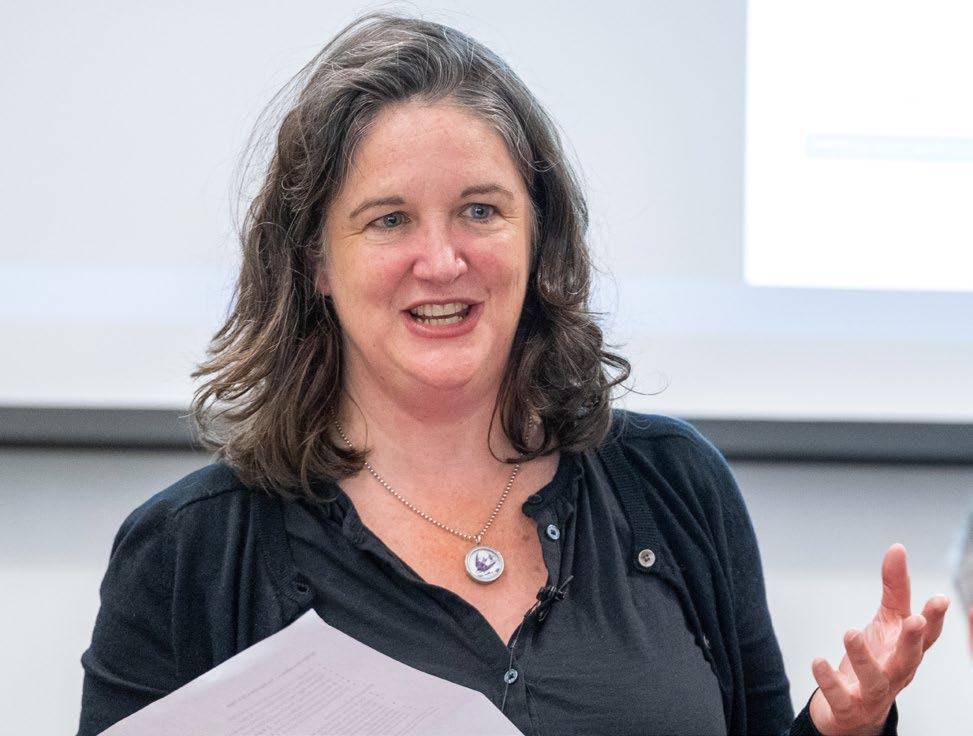
Double figures! Yes, that’s right, this year the Scottish Graduate School for Arts & Humanities (SGSAH) turns 10…
SGSAH began with a brilliant vision – of bringing together all the Higher Education Institutes (HEIs) in Scotland that offer PhDs in the Arts & Humanities to work collectively to deliver studentships, doctoral training and development, in partnership, with funding from the Arts & Humanities Research Council (AHRC) and the Scottish Funding Council (SFC). Since then, we’ve done so much - far too much to fit into this report – although I’m sure it will give you a tantalising taste of our activities from 2014 onwards…
Whenever I introduce SGSAH in talks and presentations, I’m always proud to say we were the world’s first national graduate school for the Arts & Humanities and – of course – the best. I also mention that the diversity of our HEI membership is our core strength. Our HEI members – all 17 of them – range across Scotland geographically, and are varied in their subject spread and disciplinary orientations, their student body, and their own networks. SGSAH brings all of these attributes together, uniting to demonstrate that we’re greater than the sum of our parts. Building on this collaborative ethos, we also extend outwards - working with university partners around the world through our Visiting Doctoral Researcher scheme, our EARTH Scholarships and our Global Connects programme, as well as with organisations beyond academia, through research internships, artists’ residencies, and partnership PhDs. These connections enable PhD researchers in the Arts & Humanities to come into productive conversation with multiple different perspectives, taking their research into wider worlds and learning from those dialogues.
And as we age, so our alumni body grows. These pages give a small snapshot of some of the destinations our researchers have gone onto after completing their PhDs: working in higher education, of course (and sometimes even supervising their own SGSAH-funded PhD researchers!), but also to a broad mix of organisations operating in multiple sectors.
What might the next 10 years bring? We’re living in uncertain times, with an uneven funding landscape in which we know there will be changes ahead. But if we stay true to that original vision, and amplify our values through collective work, SGSAH will continue,
I hope, to prove its worth, to create exciting opportunities for doctoral researchers, and to generate a landscape across Scotland which is truly unique.
But for now, a huge thanks to all who’ve been involved in SGSAH from its earliest days until today – none of this would exist without you!

Professor Claire Squires Director of SGSAH
(2020–) October 2024
‘Founding SGSAH in 2014 has got to be one of my career highlights. To build such a brilliant partnership organisation from scratch, in collaboration with committed colleagues, partners and doctoral researchers from across Scotland, was such an immense privilege and not one I will forget. I am so very proud of all that has been achieved.’
Professor Deirdre Heddon Founding Director of SGSAH (2014–2019)
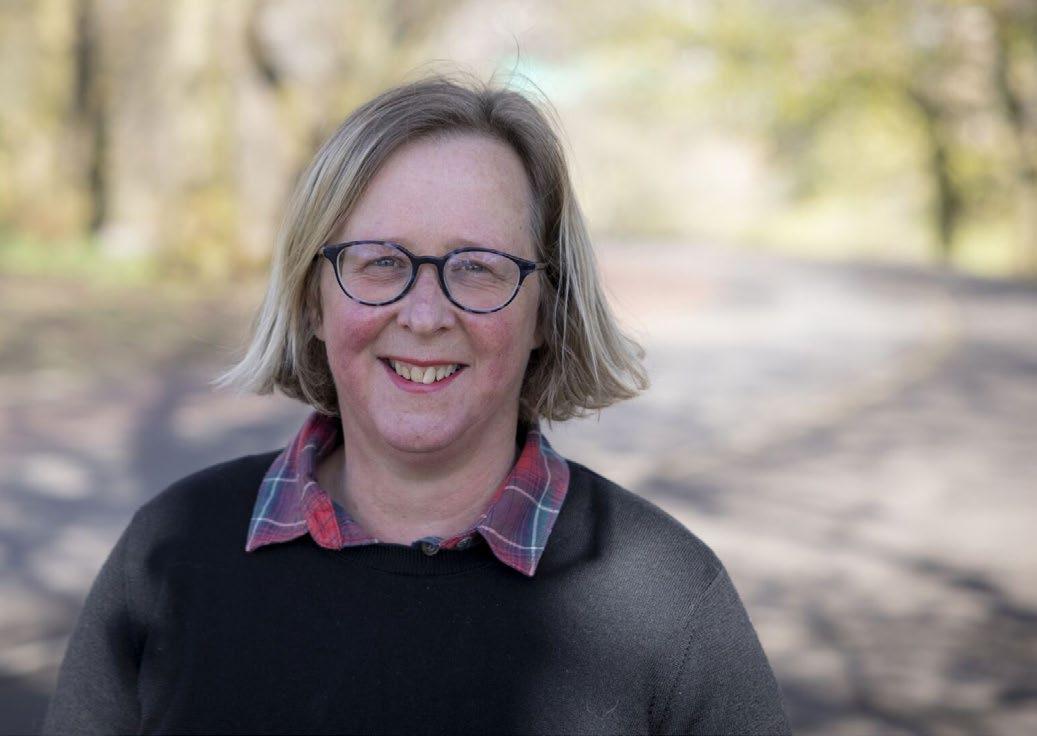
• Professor Dee Heddon appointed as founding Director
• First cohort of PhD researchers o ered studentships in a national consortium
• SGSAH grows from a consortium of 8 HEIs to 16
• Pan-Scotland policies agreed in the management of doctoral researchers
• Applied Research Collaborative Studentships (ARCS) launched in conjunction with SFC, with mandatory cross-HEI and external partner supervision
• Research internships and Artist Residency scheme launched
• First SGSAH Summer School held
• Scottish Universities Research Collections Associate Scheme
• Introduction of Scotland-wide training sessions for supervisors
• Materials Culture training programme
• Hear Here training programme
• Creative Practice Network formed
• Launch of the SGSAH Blog
• First collaborative doctoral studentships in the Creative Economies awarded to SGSAH through the AHRC National Productivity Investment Fund
• Spring into Methods, a collaborative training programme with the Scottish Graduate School of Social Science (SGSSS) launched
• DTP2 (2019–2023) funding awarded to SGSAH
• New Digital Research Showcase website launched
• Part-time doctoral researcher network developed
• SFC Saltire Emerging Researcher Awards o ered for research exchanges between Scotland and Europe
• Professor Claire Squires appointed as SGSAH’s Director
• Professor Craig Martin appointed as Deputy Director
• Fully online delivery of training and development activities developed (due to COVID-19)
• Doctoral Researcher Committee established
• SGSAH turns 5!
• Launch of the AHRC-funded Collaborative Doctoral Awards (CDAs), in partnership with sectoral organisations
• Glasgow Caledonian University joins SGSAH as the 17th HEI member
• SGSAH GREEN/GRADUATE Strategy and Operations Plan published
• Global Connects – SGSAH International Summer School launched
• SGSAH’s rst trip on the Paddle Steamer Waverley
• British Council Scotland EARTH Scholarships launched for incoming scholars in the Environmental Arts & Humanities
• AHRC Postdoctoral Fellowship Scheme delivered
• Partnership with the Stuart Hall Foundation Fellowships developed
• SGSAH appoints EDI Lead, Dr Anindya Raychaudhuri
• SGSAH celebrates turning 10!
• Launch of Global Majority Network
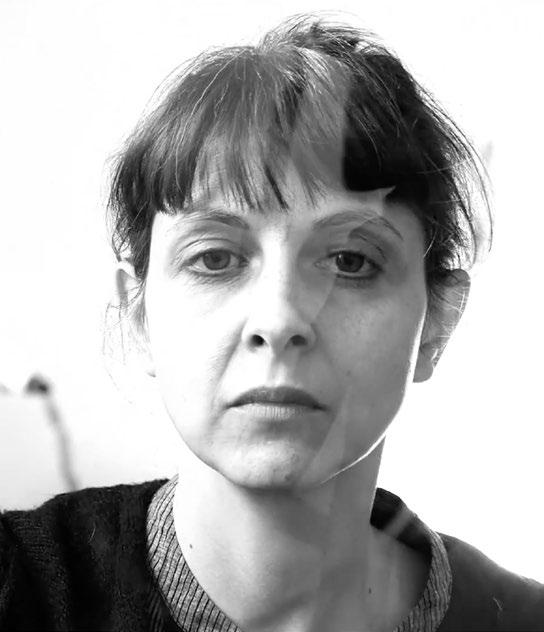
‘SGSAH allowed me to carry out a practice in research project, supported my practice, and gave me great learning opportunities through workshops and seminars... I don't know how many PhD students in their last months would say this, but I would do it again. Thank you.’
Irene Ros PhD Researcher, University of Edinburgh
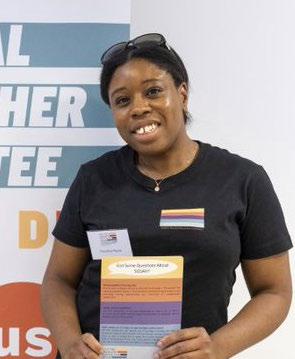
‘Working with SGSAH’s Doctoral Research Committee as Chair over the past 4 years has been an absolute privilege. Since the outset, the DRC has been able to bring the doctoral researcher voice and perspective to discussions on SGSAH's strategy and operational planning. It's been great to see the practical changes that as representatives we have made based on our own experiences and those of our peers across the Arts & Humanities, which have and will continue to make SGSAH's offering more relevant. On a personal level I've loved every moment of being part of the committee and the varied conversations and people it has allowed me to meet – it has made my PhD a much richer experience.’
Perpetual Brade Chair of SGSAH’s
Doctoral Researcher Committee (2020–24), University of the West of Scotland
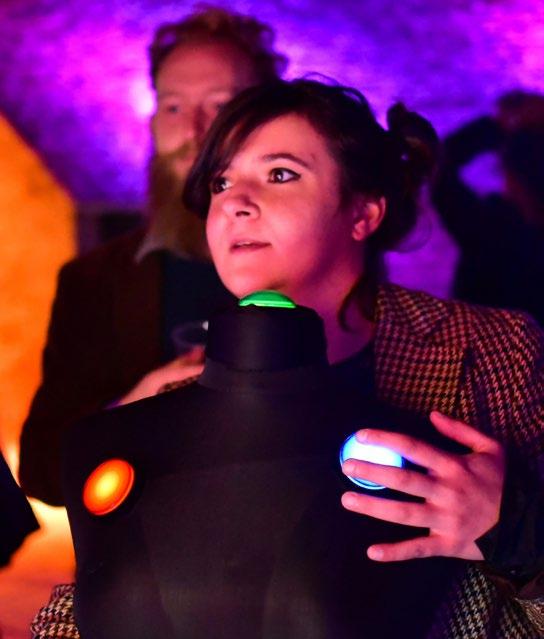
‘My ARCS PhD Connecting Performance and Play (2015-2019) offered me the unique and exciting opportunity to be primarily based at Abertay University whilst also having access to expertise, support and guidance from The Royal Conservatoire of Scotland, The National Theatre of Scotland and SGSAH. This enabled me to undertake a practice-based project to explore the potential of hybrid experiences that draw from contemporary performance and video games. I secured my first academic post in 2019 (whilst I was writing up my thesis) as a Lecturer in Immersive Experience Design at Abertay University, where I am currently co-leading the Game Design and Production Programme.’
Dr Mona Bozdog, FHEA
SGSAH Alumna and Programme Co-Lead & Lecturer in Immersive Experience Design, Abertay University
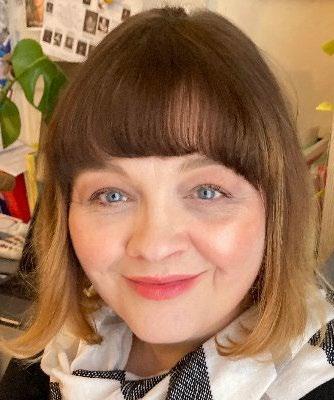
‘As a mature student studying Early Modern Scottish Women's letters at the University of Glasgow, I couldn't be more thankful to SGSAH for offering me the opportunity to study and research such fascinating yet under-valued materials.’
Claire Elder PhD Researcher, University of Glasgow
Over the past 10 years, SGSAH has enabled its funded doctoral researchers to take on a number of opportunities both in Scotland and globally.
These activities have included undertaking training and development activities such as language learning and international summer schools, conducting primary research including archival visits and fieldwork, generating creative practice work (theatre performances, publications and site-specific art), travelling to take up places as Visiting Doctoral Researchers at universities around the world, and engaging a range of audiences through knowledge exchange and impact-oriented work.
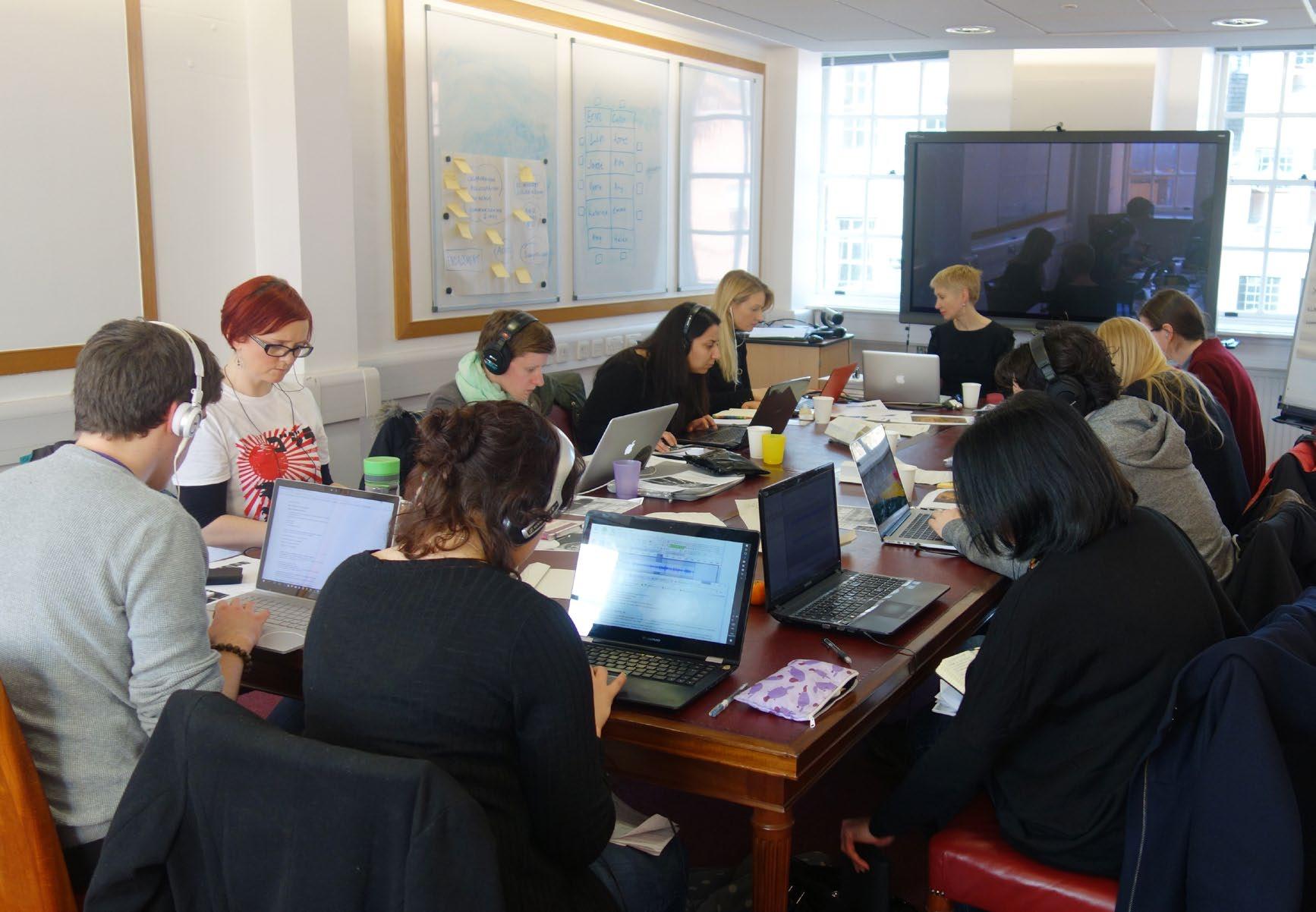
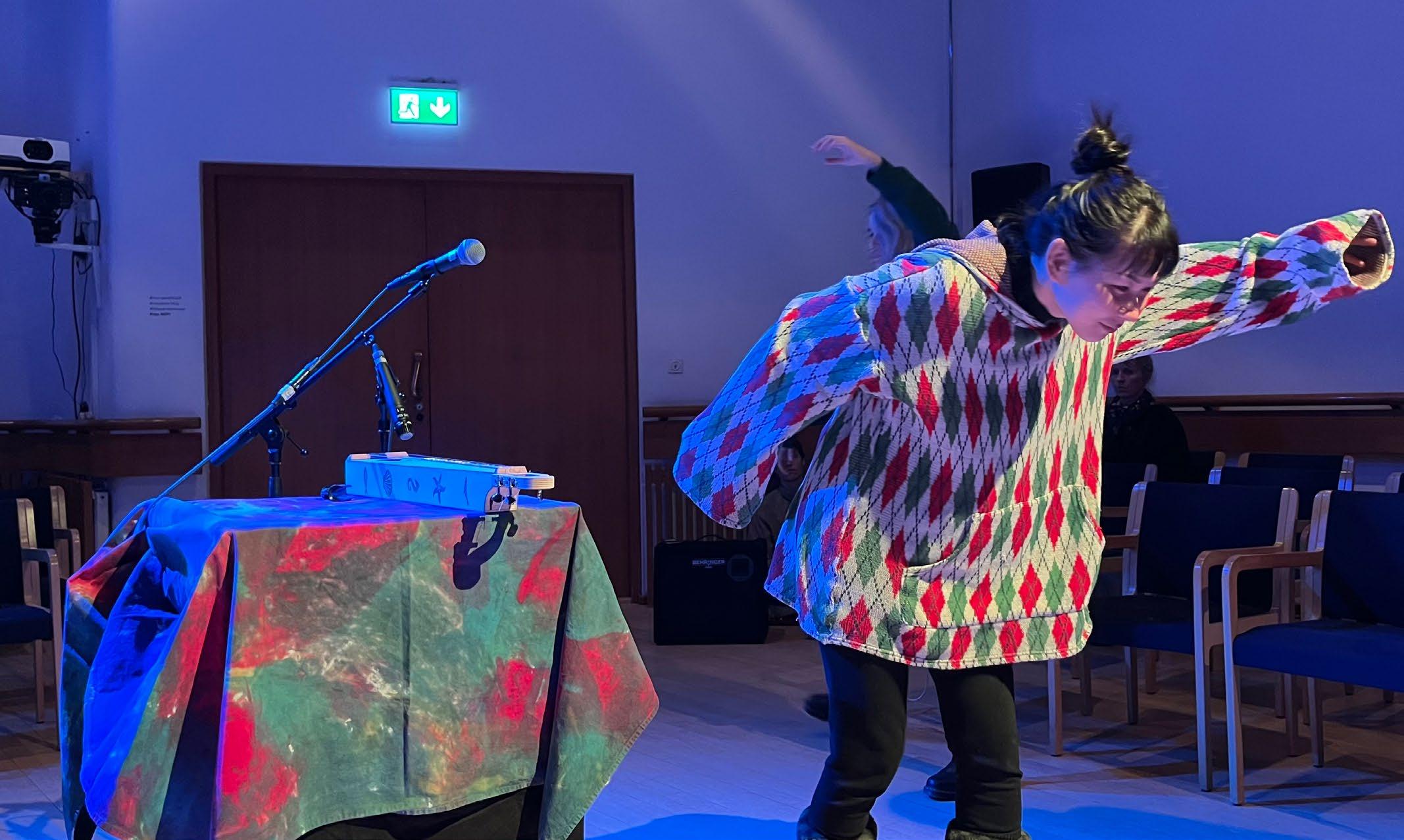
Since 2014, SGSAH has funded 469 individual applications for funding.
To give a sense of the range of activities, here are a small selection of what has been enabled:
• Visiting Doctoral Researcher positions (from 1–12 months) across the world, including in Canada, Denmark, Germany, Ghana, Italy, the Netherlands, New Zealand, Spain, Sweden and the USA.
• Training and skills development, including an advanced filmmaking workshop with industry professionals, and training in aerial photography, Greek epigraphy, the philology, editing and interpretation of medieval liturgical sources, and attendance at the Human-Animal Studies Summer Institute (Illinois) and the Oxford Refugee Studies Centre International Summer School in Forced Migration.
• Language learning, including Ancient Greek, Gaelic, Icelandic, Inuit (in order to undertake an ethnographic study over 6 months in Arctic Canada), theological Latin and Swahili.
• Creative practice outputs including performances at the Citizens’ Theatre in Glasgow and the Edinburgh Festival Fringe, and the publication of a film-poem and sculptures in partnership with the RSPB.
SGSAH aims to develop doctoral researchers who not only recognise the value of Arts & Humanities research to Scotland and beyond, but who possess the skills and capabilities to apply that research in addressing issues of social and cultural priority.
To this end, SGSAH works with core partners and an ever-growing number of supporters in the greater arts, cultural, creative, public, heritage and third sectors to plan and deliver unique training and skills development opportunities. From hosting research interns and working with doctoral candidates on partnership PhDs to delivering skills training and shaping strategy through membership of SGSAH’s Knowledge Exchange Hubs, there are many ways our external partners play an intrinsic role in delivering our doctoral training programme.

Since SGSAH’s inception in 2014, SGSAH has worked hand-in-hand with core industry partners from the worlds of media and entertainment, education, museums and archives, cultural policy, heritage and politics, specifically: BBC Scotland, British Council Scotland, Built Environment Forum Scotland, Creative Scotland, Highlands and Islands Enterprise, Historic Environment Scotland, Museums Association, National Museums Scotland, Scottish Centre for Voluntary Organisations, National Trust for Scotland, the Scottish Parliament and the V&A.
Alongside these core partners, SGSAH works with hundreds of other organisations across the globe on placements, collaborative PhDs and industry training spanning major global brands to small rural charities.
‘Working in partnership with SGSAH for the past decade has been so helpful for us; it has given a solid route to forging relationships with emerging scholars interested in working with the BBC and within public service broadcasting more widely, and the partnership has offered mutually beneficial insights into relevant current research in the creative industries.’
Luke McCullough Head of Corporate Affairs & Public Policy, BBC Scotland
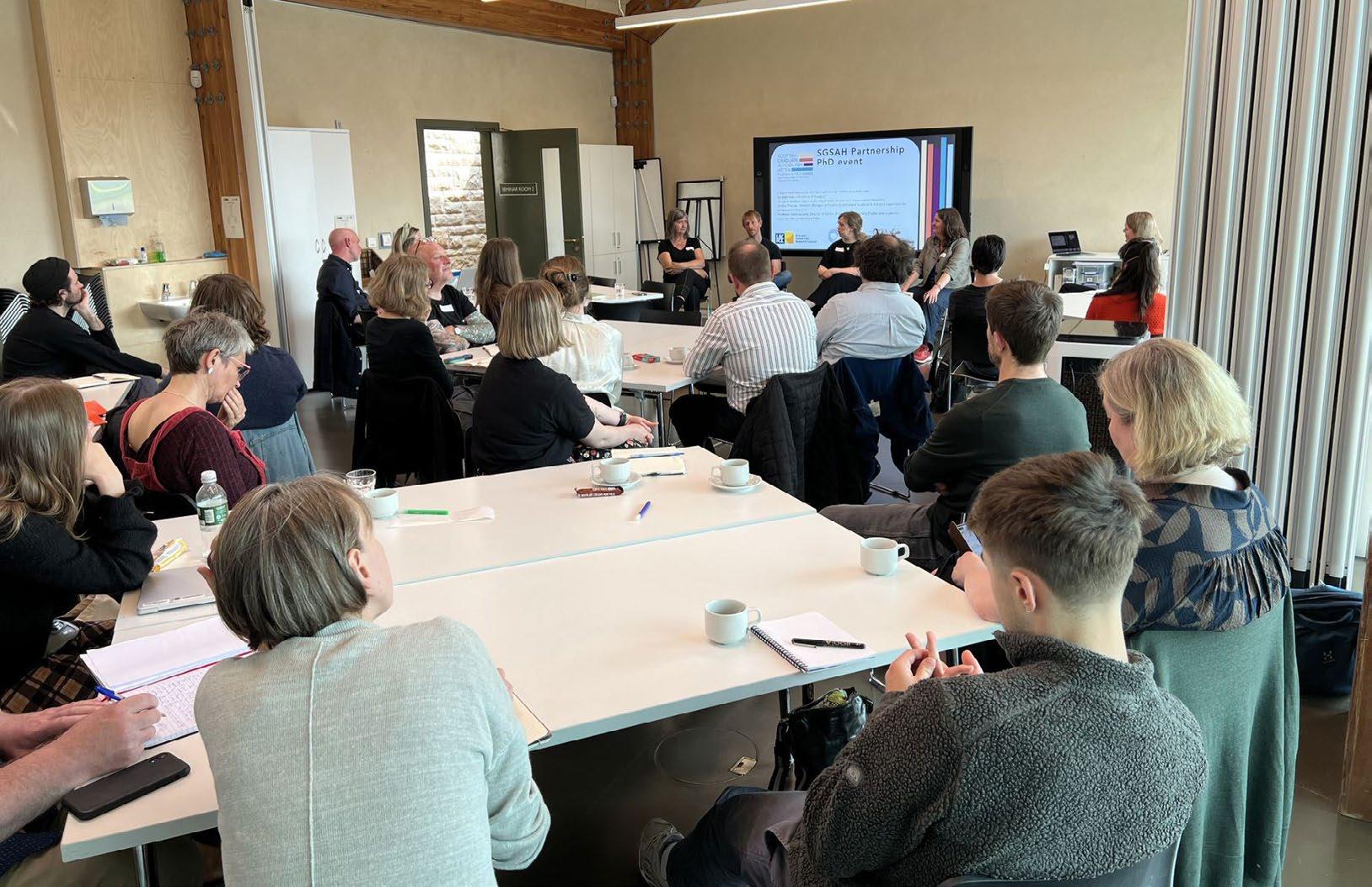
In May 2024, SGSAH held its annual Partnerships event at the Engine Shed, Historic Environment Scotland’s dedicated building conservation centre in Stirling, welcoming academics, industry partners and PhD researchers from across the country to come together.
‘Historic Environment Scotland has worked with SGSAH in a wide variety of ways over the past 10 years, from supporting heritage careers events and training workshops, to hosting internships and partnering to co-supervise collaborative PhDs. We’ve benefitted enormously from working with such a diverse, skilled set of researchers and look forward to further fruitful collaborations with SGSAH in the future.’
Dr Ben Thomas Research Manager, Historic Environment Scotland
223 hours of SGSAH Knowledge Exchange Hub training sessions for researchers
250+
non-academic partners worked with since 2014
4,500
SGSAH partnership event places open to all Arts & Humanities researchers in Scotland over a decade
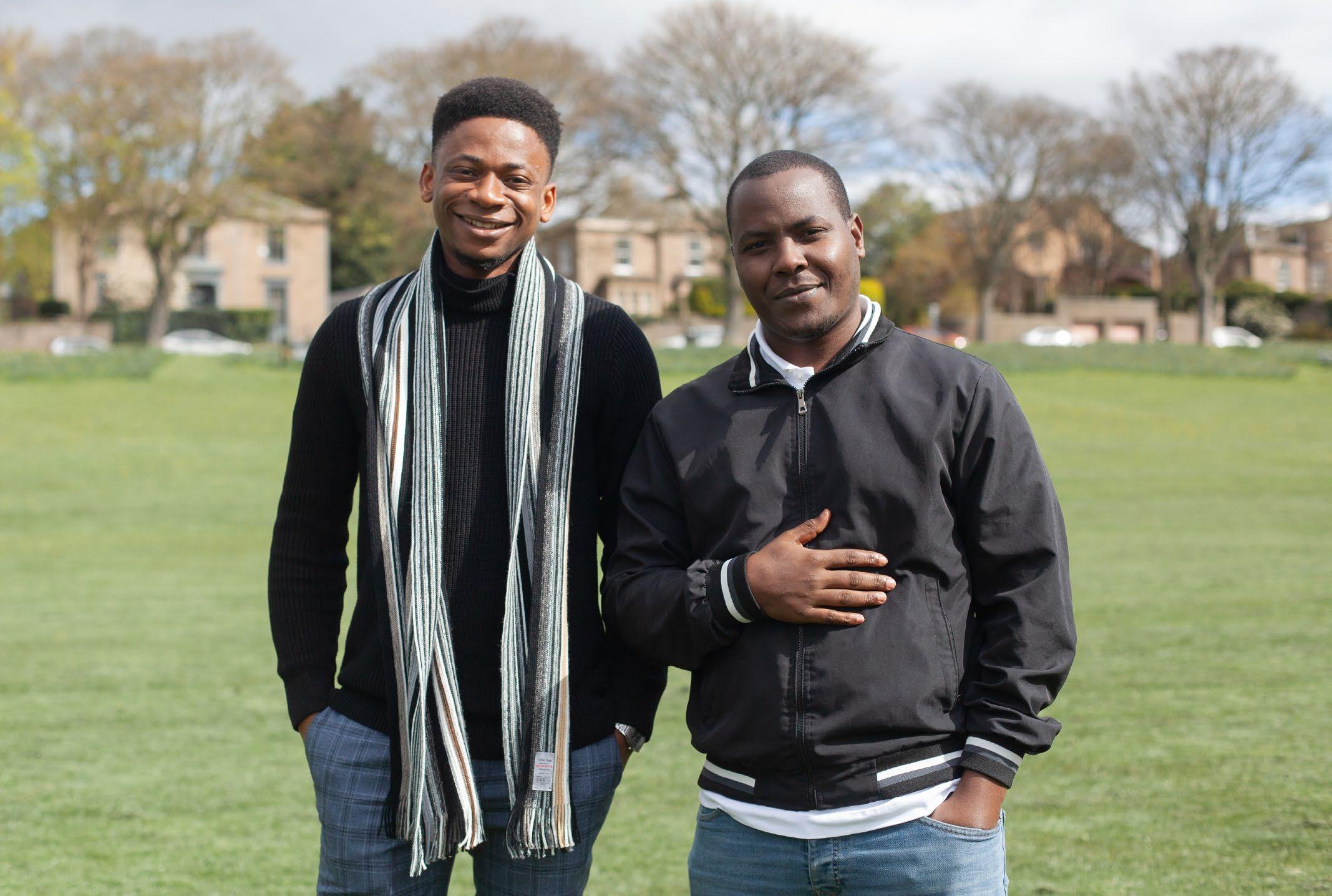
SGSAH has always striven to put Equality, Diversity and Inclusion at the heart of everything it does.
In 2021–22, SGSAH began a process of positive action ringfencing in the DTP Open Competition. SGSAH identified that UK-domiciled Black, Asian and Minority Ethnic PhD researchers were particularly under-represented, so SGSAH since advertised ring-fencing for at least 3 applicants from British BAME demographics every year.
SGSAH has also introduced new resources of support for students who face structural barriers. These resources includes mentoring schemes for both applicants and PhD researchers, as well as a popular summer school, ‘Leap into PhD’ which aims to demystify the PhD application process.
In 2022, SGSAH launched a new fellowship scheme in collaboration with the Scottish Graduate School of Social Sciences (SGSSS) and the Stuart Hall Foundation.
Inspired by the life and work of Professor Stuart Hall and his research legacy in the areas of race, ethnicity, cultural and structural inequalities, this scheme aims to provide opportunities for PhD researchers from nontraditional and disadvantaged backgrounds. The scheme promotes research which aligns broadly with one of Stuart Hall’s many areas of interest: cultural studies, race, ethnicity and inequalities. Recipients of these Fellowships benefit from access to the Stuart Hall Foundation Scholars and Fellows network programme, which includes regular events and opportunities to develop their career and research profile.
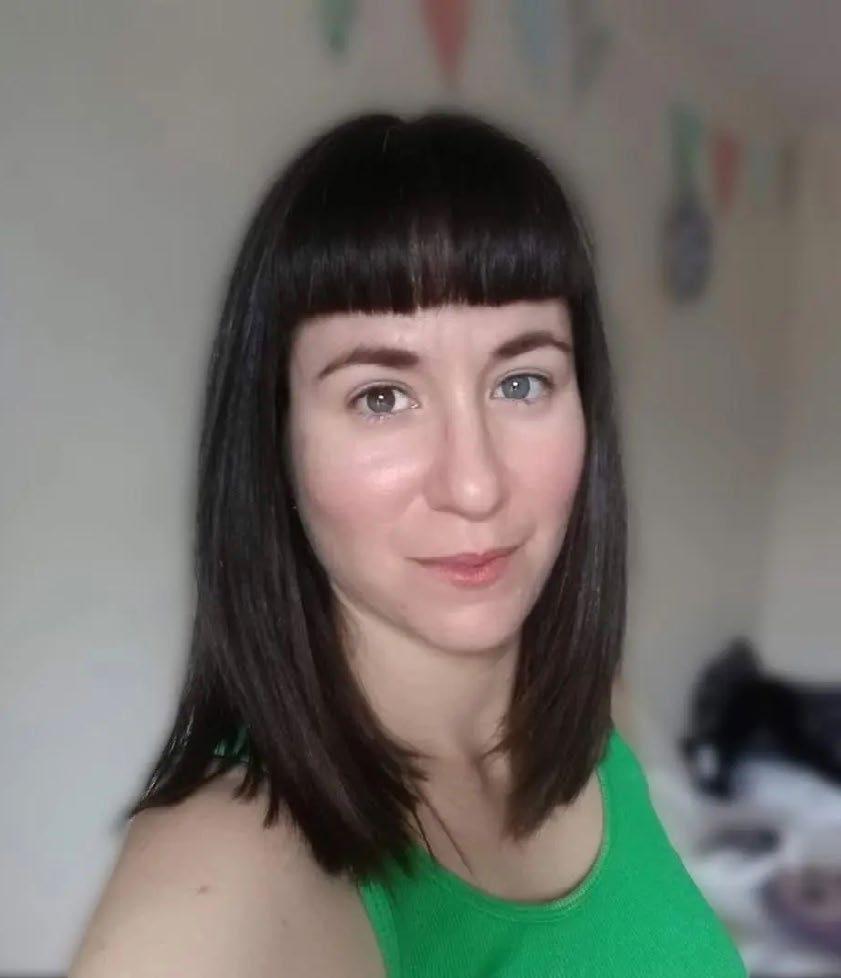
One of the first cohort of Stuart Hall fellows, Gabriela Domené López (University of Aberdeen), says:
‘Being part of the first cohort of SGSAHfunded Stuart Hall Foundation PhD Fellows has been a great experience. The SHF provides hybrid access to many events. One of the hybrid events is the Monthly Online Forum where we can all get together to discuss readings and our work. I’m based in Aberdeen so my distance from London has made it difficult for me to attend as many events as I would like, however, the SHF also subsidised a visit to London in order for me to attend the Anti-racist scholar activism workshop in March 2024. The workshop provided me with an opportunity to meet people with similar backgrounds and interests to myself from universities outside my regular SGSAH network. I'm grateful to have been offered the opportunity to be a member of such a wide-reaching network and can't wait to see more!’
Over the past decade, SGSAH has funded hundreds of PhD projects and now has over 600 alumni across the world. There's no shortage of stories to tell about their journeys, and SGSAH endeavours to celebrate their accomplishments and impact, nurturing relations with them beyond their PhD.
The growing diversity of the SGSAH alumni body boosts the voice of Arts & Humanities research in Scotland and across the globe. SGSAH is also grateful to our alumni for playing an ongoing role in the current PhD researcher experience from recruitment to graduation and beyond, serving as a point of access to a diverse set of opportunities including mentoring, training expertise, advising on internships and through global connections.
To help promote the work and achievements of alumni, SGSAH has a dedicated research website (sgsahresearch.com) focused on showcasing current PhD researchers and alumni, which forms a dynamic, accessible and visual online showcase of SGSAH research. These profiles are lasting records of SGSAH’s graduates and ‘alumni in waiting’.
If you’re a former SGSAH researcher we’d love to keep in touch! Do tag us on X or Instagram with your professional and research stories, complete our alumni communications form via the ‘Alumni’ section of our website, and add us as one of your educational institutions on LinkedIn.
The following alumni profiles give a taste of our where the SGSAH community is now.

Katie commenced her SGSAH-supported PhD study in 2014.
‘I undertook my PhD at the University of Aberdeen, looking at an atheist church (which blessed me with the jammiest, easiest two-word elevator pitch!). Since my PhD, I’ve held a postdoctoral position, and am now a lecturer in theology also at Aberdeen. SGSAH training equipped me to navigate the challenges of academia, and the friendships and shared experiences with my cohort were just invaluable.’
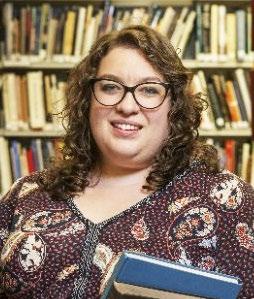
Jill started her Applied Research Collaborative Studentship (ARCS) PhD between the University of Stirling, the University of Dundee and the Library of Innerpeffray in 2015.
‘Undertaking my collaborative PhD via SGSAH has provided me not only with expertise in a specific area of knowledge, but valuable practical experience, growing my credibility and authority in my field. The experience has opened a lot of doors to opportunities for me that I wouldn't have been able to access otherwise, and has definitely helped me advance my career in the library world.’


Andrew undertook his Creative Economies PhD in AI & Music at the University of Glasgow between 2018–22.
‘I’m now the founder and Chief Technology Officer at Neutone, Inc; an AI music technology company based in Tokyo, Japan. My adventure of starting a company I am passionate about in a country at the opposite side of the world would not have been possible without SGSAH’s support and particularly the internship programme, where I worked with a music company in Tokyo.’
Alborz, who began his PhD at University of Edinburgh in 2019, is now working in an academic role in Ireland.
‘Since my PhD in Architectural History, I have been appointed as a Postdoctoral Researcher at University College Dublin and as Executive Editor of Architectural History (the journal of the Society of Architectural Historians of Great Britain). I have also been contracted to write a monograph related to my PhD research by Routledge. The SGSAH doctoral programme was really rewarding, and from my perspective, my achievements are a direct result of the SGSAH training.’
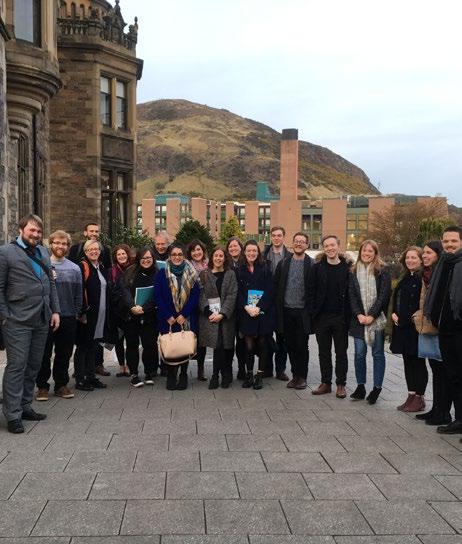
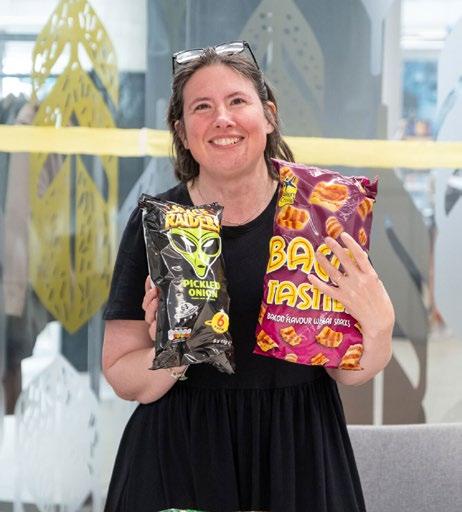
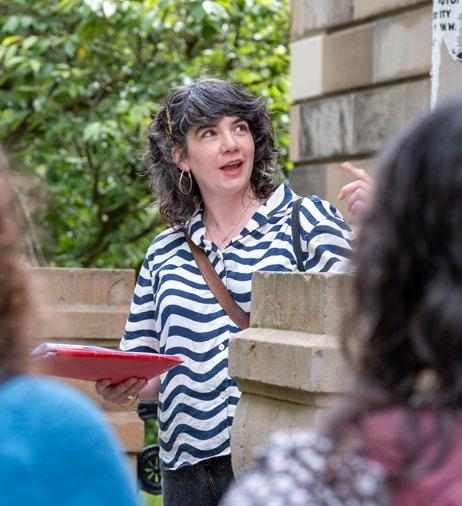
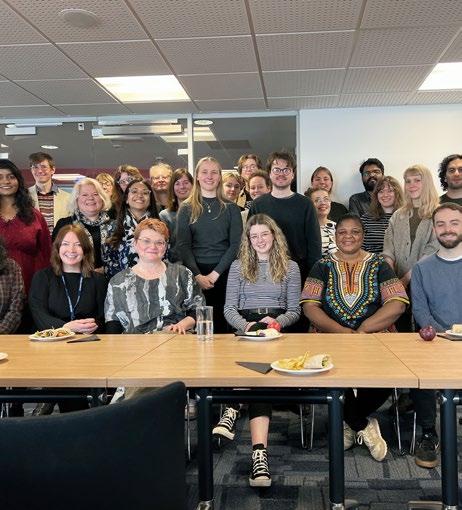
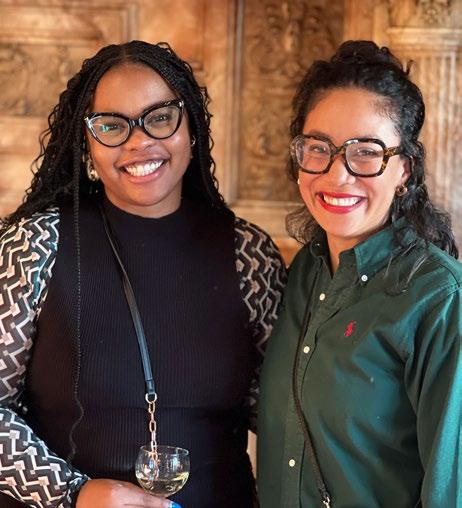
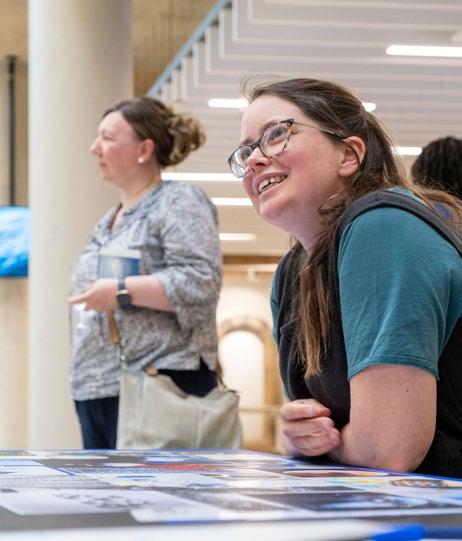
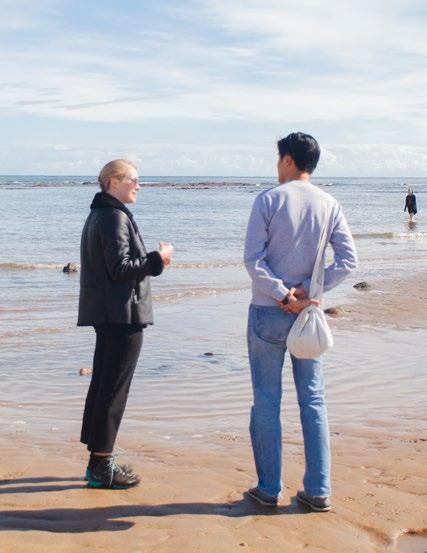
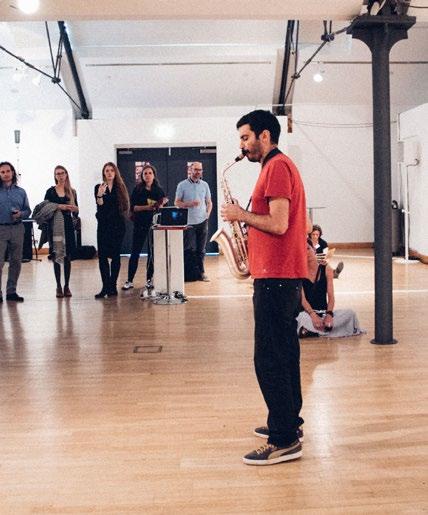
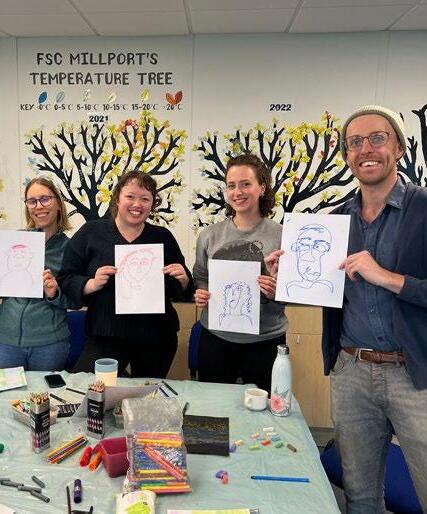
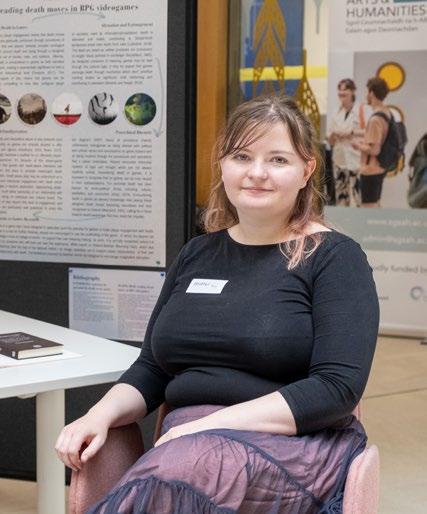
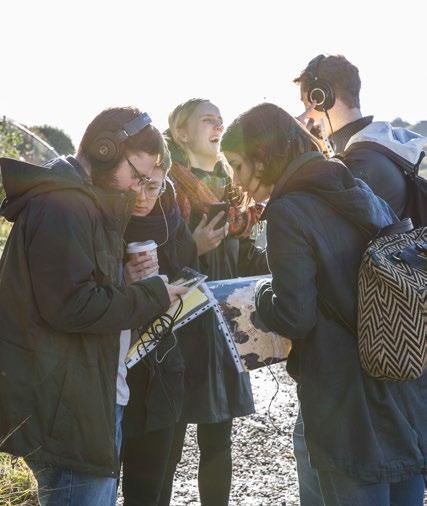
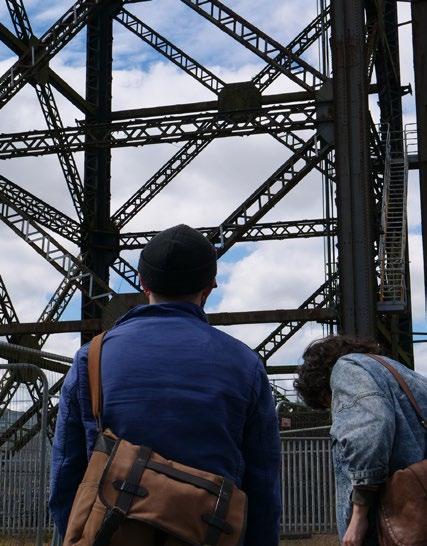
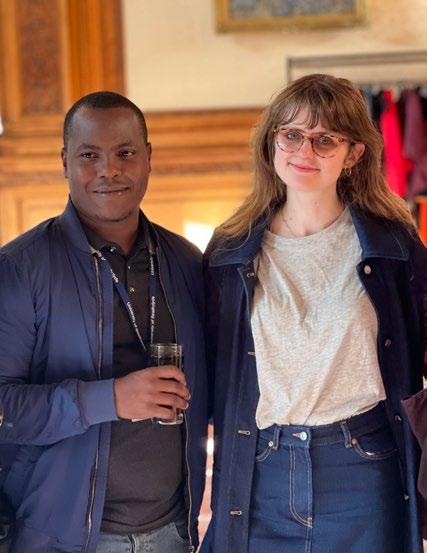
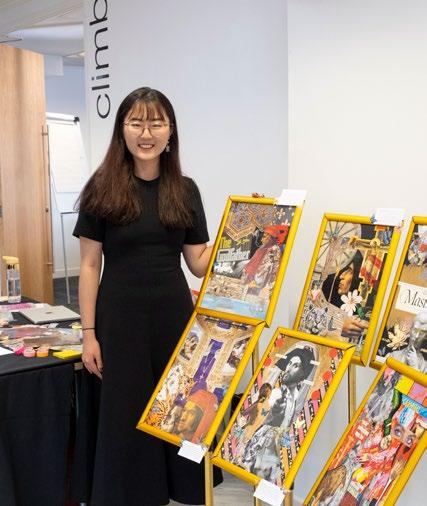
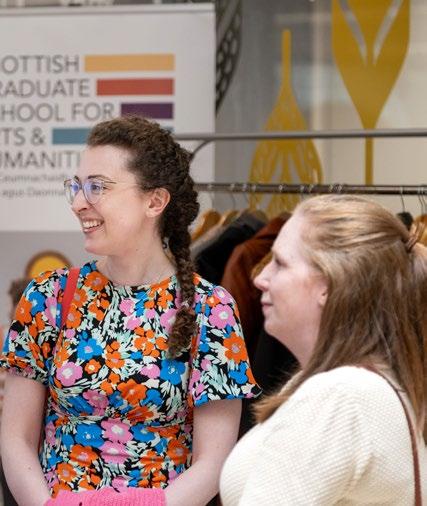
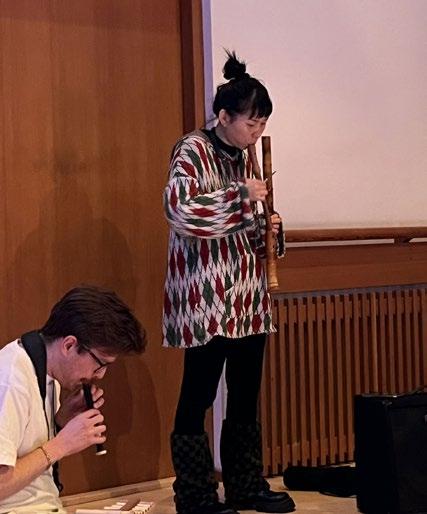
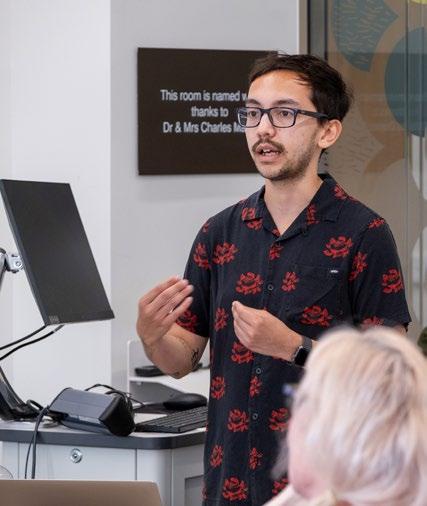
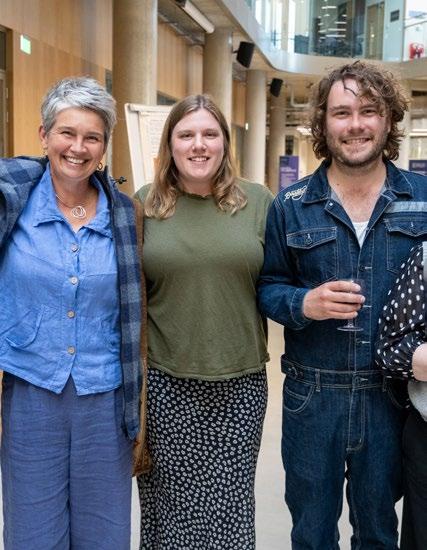
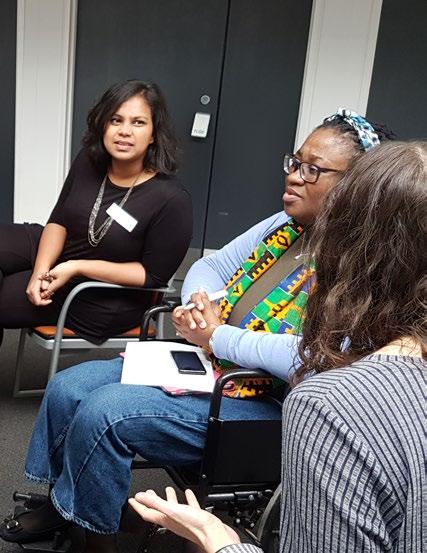
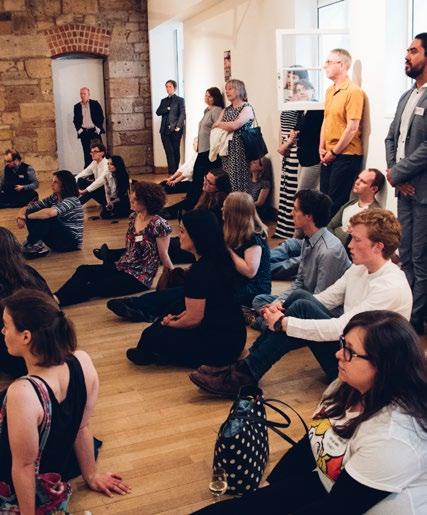
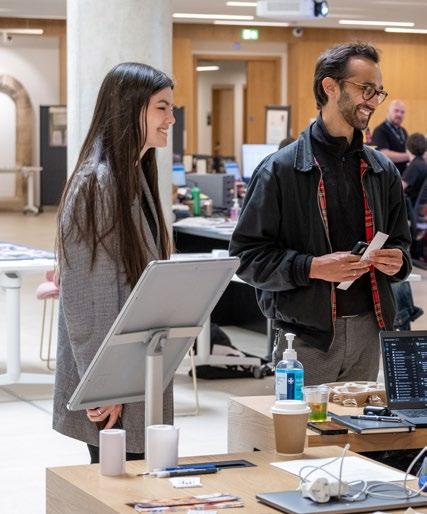
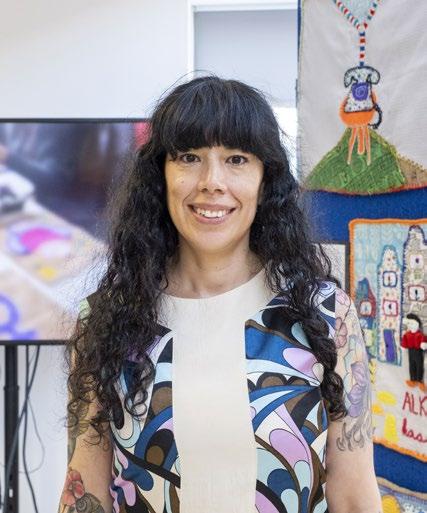
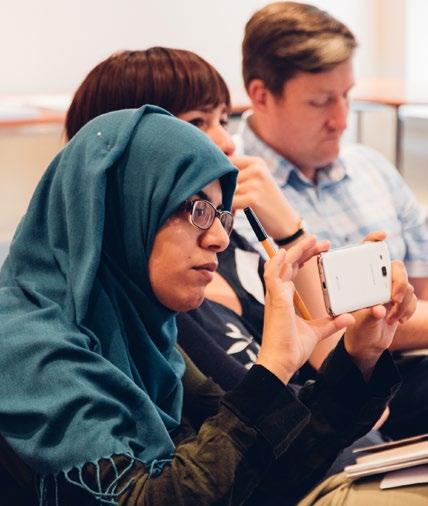
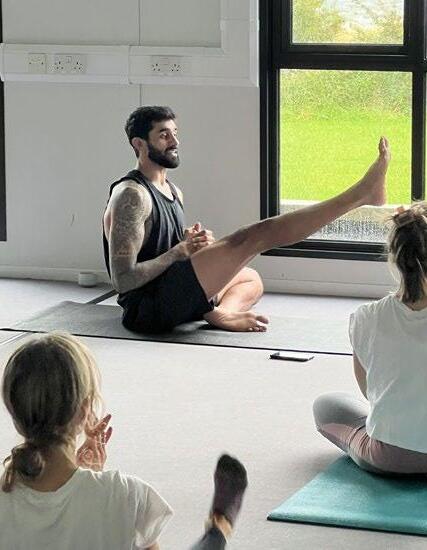
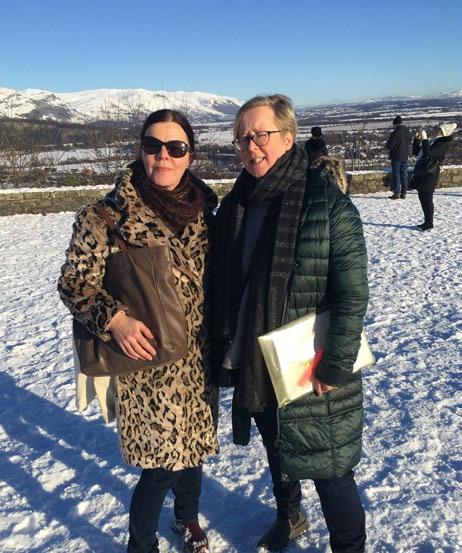

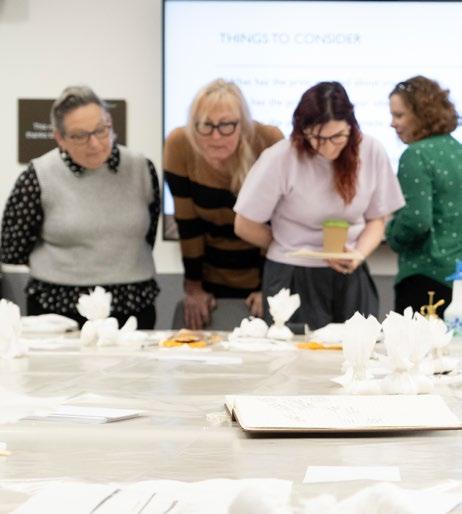
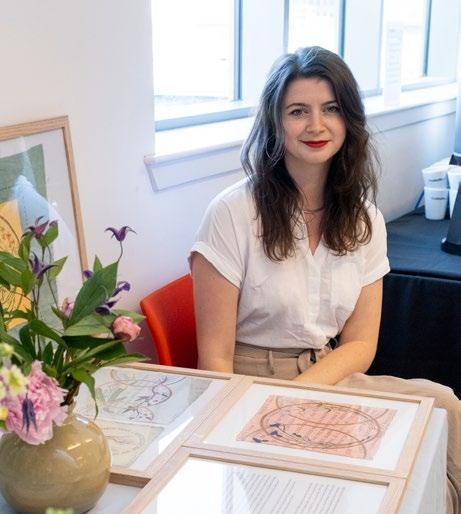
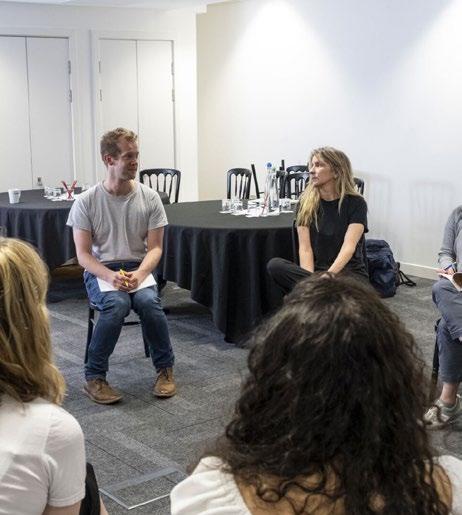
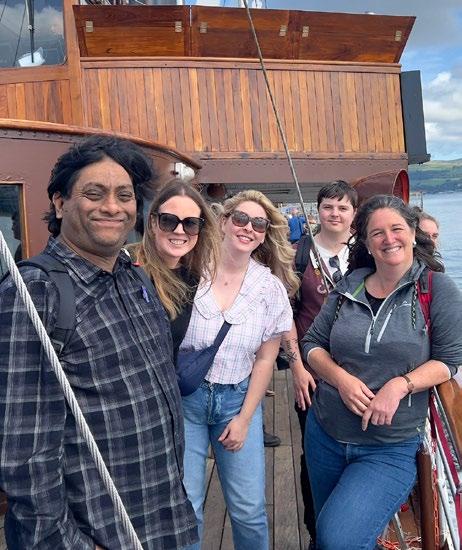
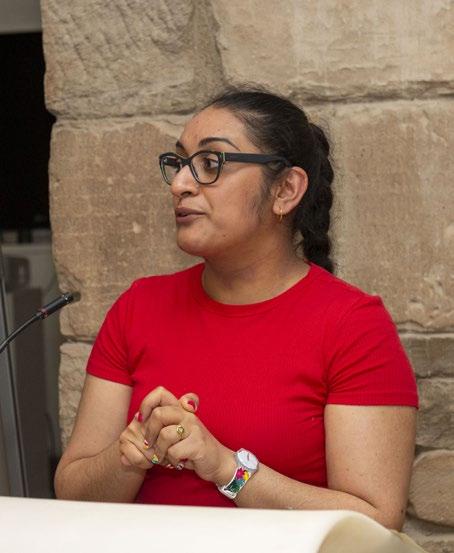
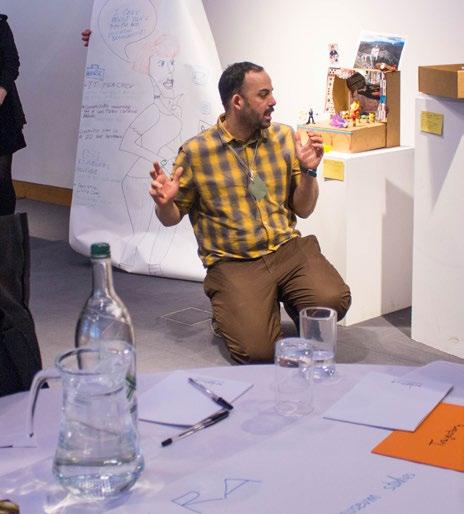

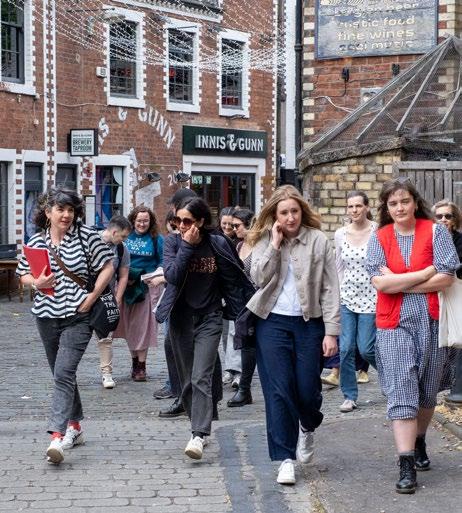
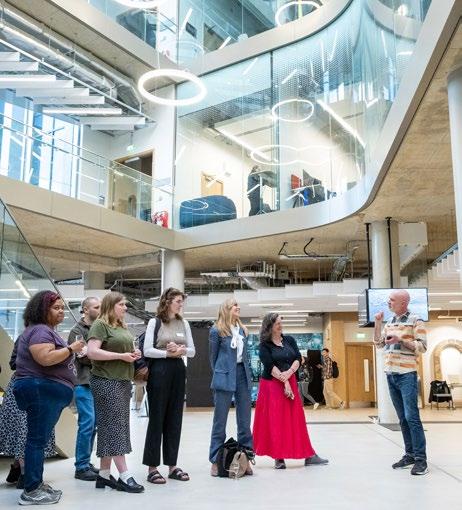
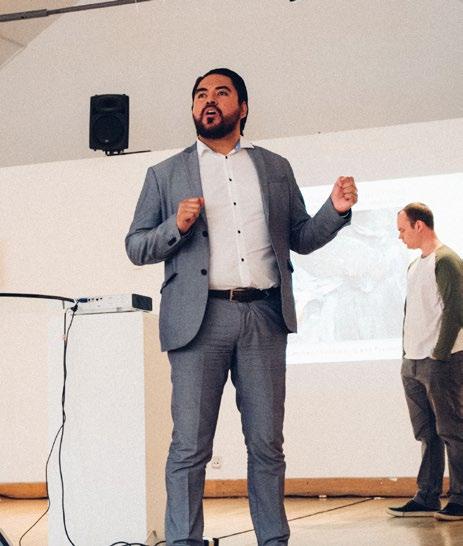
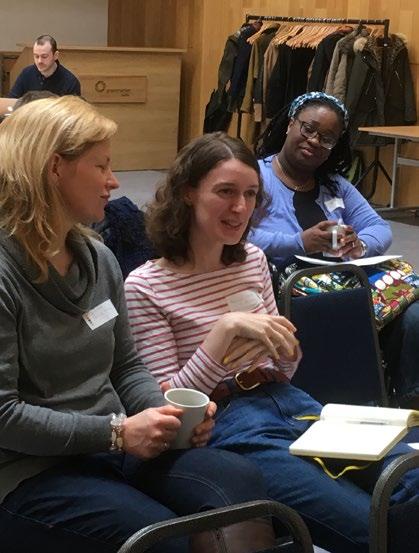
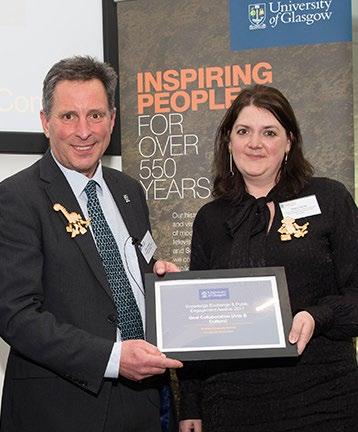
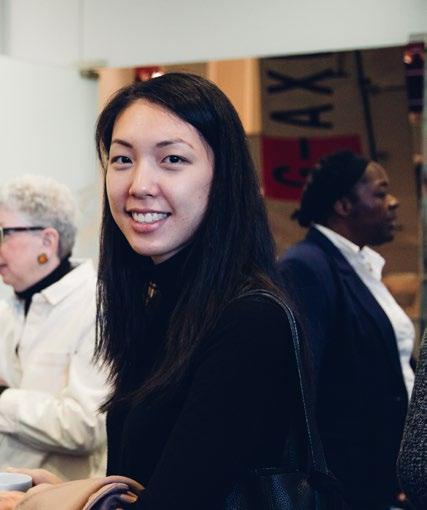
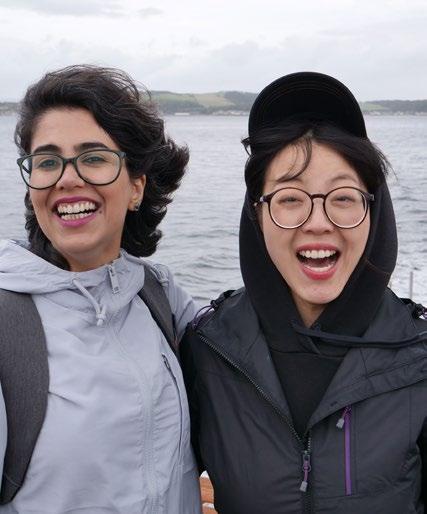
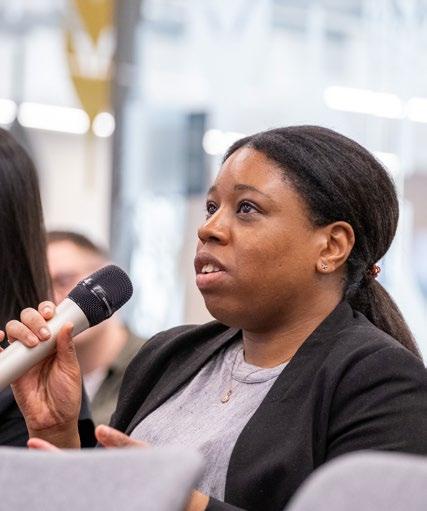
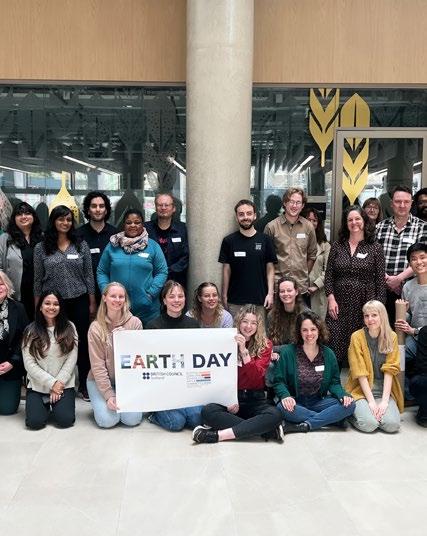
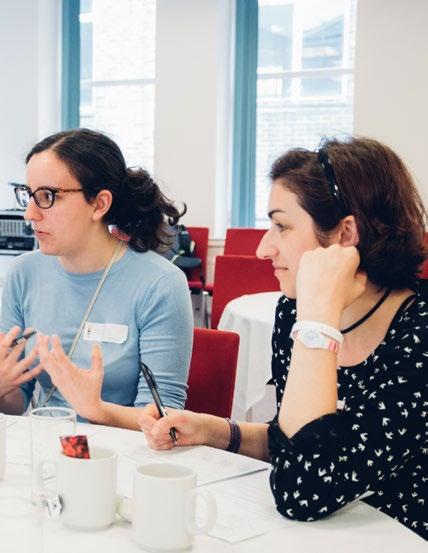
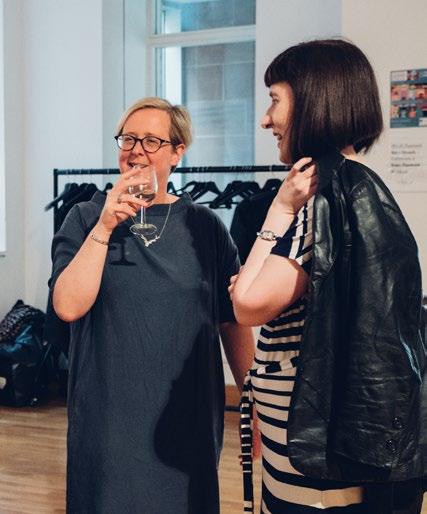

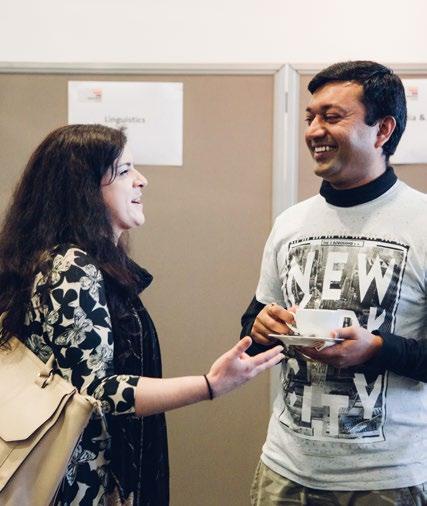
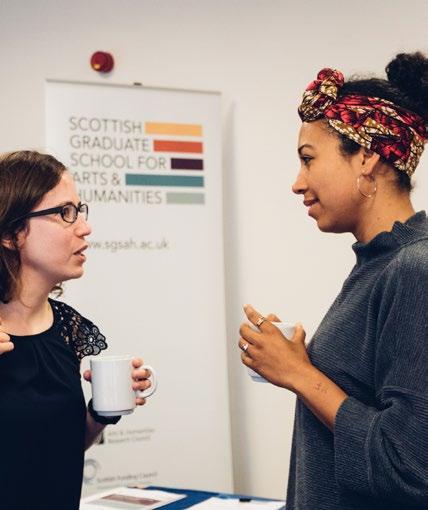
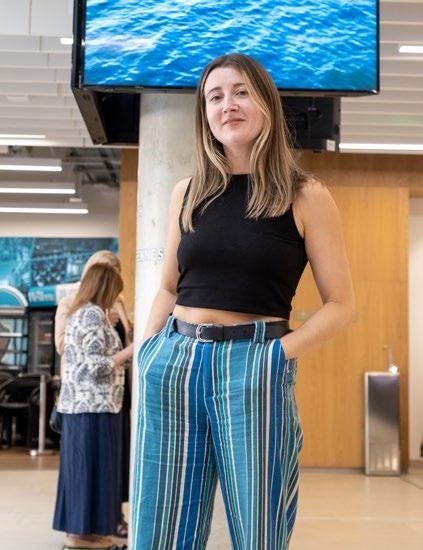
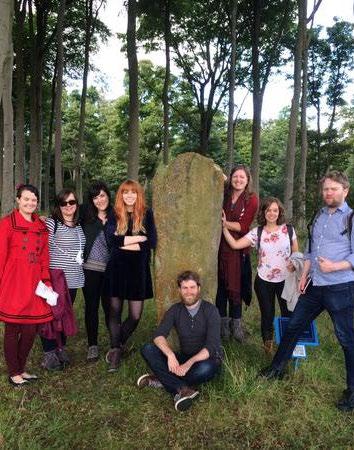
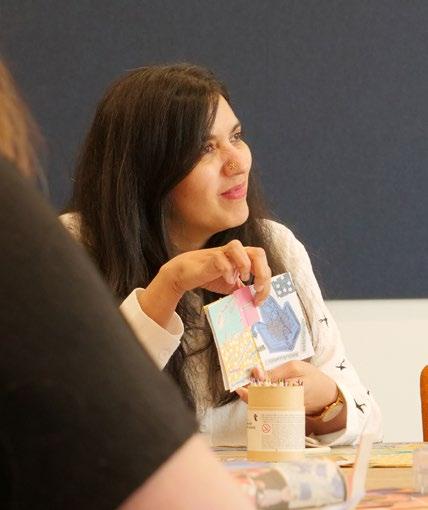
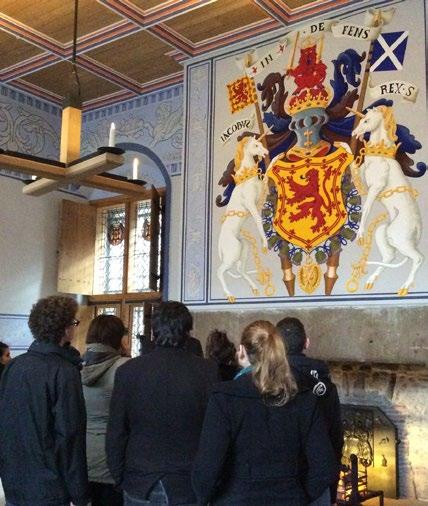
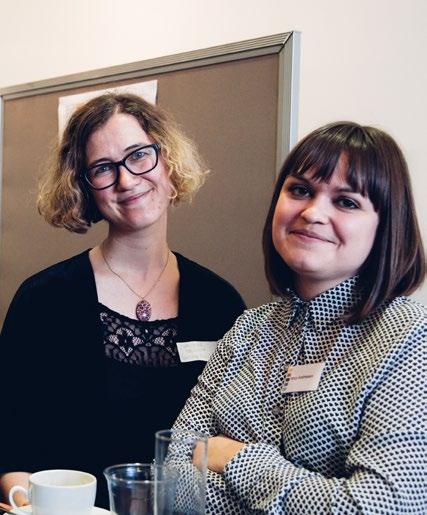
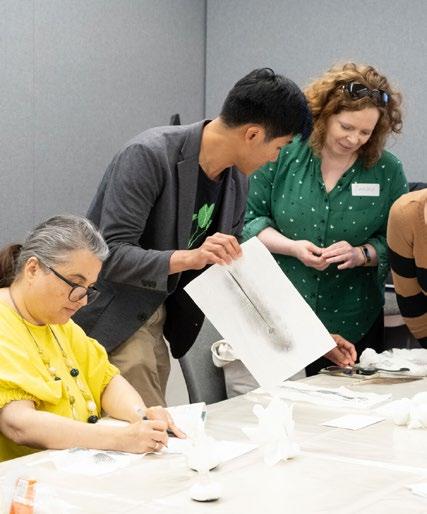
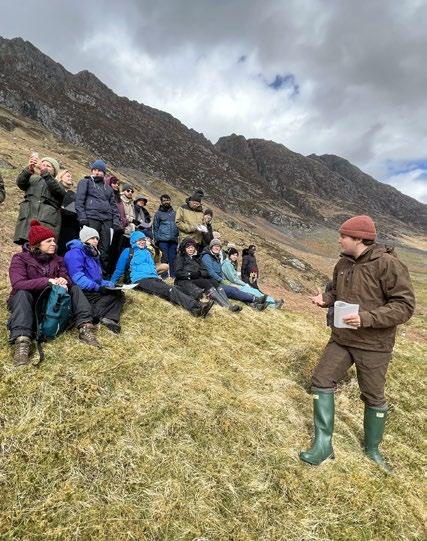
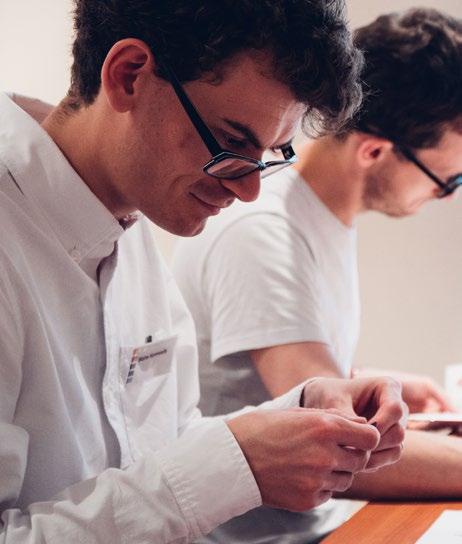
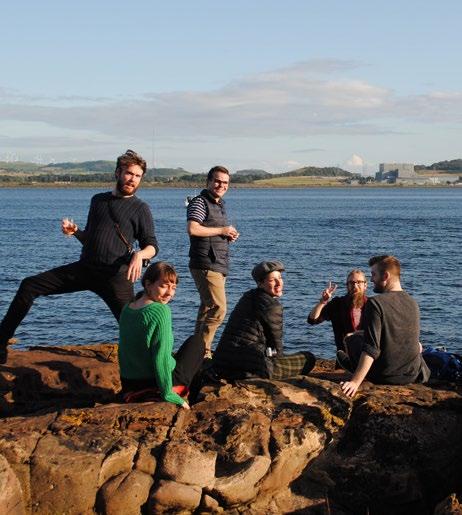
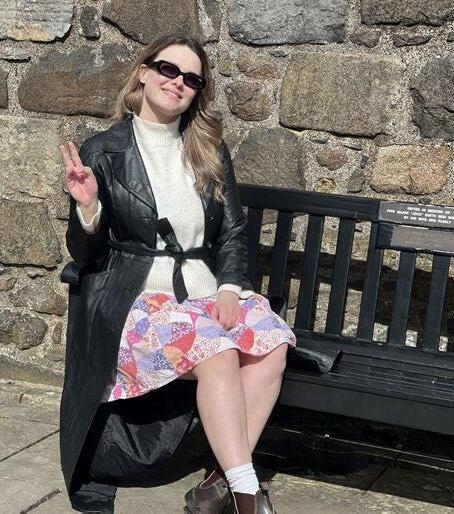
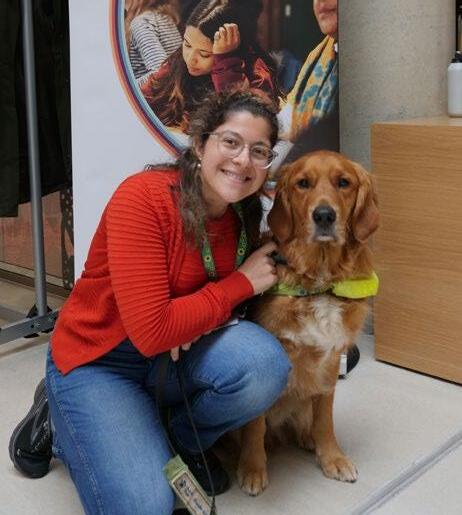
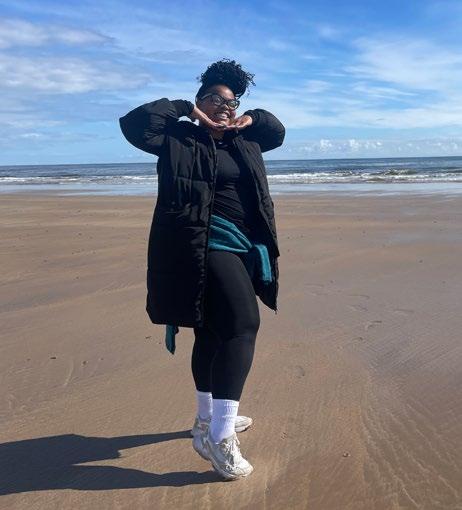

Every year, SGSAH funds a number of collaborative PhDs (a PhD undertaken between HEI-based researchers and the private, public or third sectors) through our AHRC-funded Collaborative Doctoral Awards (CDA) and SFCfunded Applied Research Collaborative Studentships (ARCS).
Over the past 10 years, SGSAH have funded 70 CDAs and 31 ARCS, with diverse collaborating partners ranging from global bodies including NASA to local heritage organisations such as Inverary Castle, and from the world-renowned Edinburgh Festival Fringe to Gaelic audio archive Tobar an Dualchais. PhD researchers have also been based at HEIs spanning the length and breadth of Scotland from Abertay University, Edinburgh Napier University and the University of the West of Scotland.
SGSAH’s partnership PhDs are intended to encourage and develop collaboration between HEIs and non-HEI organisations and businesses. The studentships provide opportunities for doctoral researchers to gain first-hand professional experience outside the academic environment, and address specific research questions or problems related to the partner organisation. The support provided by both academic and external supervisors enhances the employment-related skills and training a doctoral candidate gains over the duration of their PhD.
The studentships also encourage and establish longer-term links between the partners that can have benefits for the organisation, the HEIs, and the individual PhD researcher, providing access to resources and materials, knowledge and expertise that may not otherwise have been available. They also encourage and establish longer-term links between the partners, while creating social, cultural and economic benefits to the wider society.
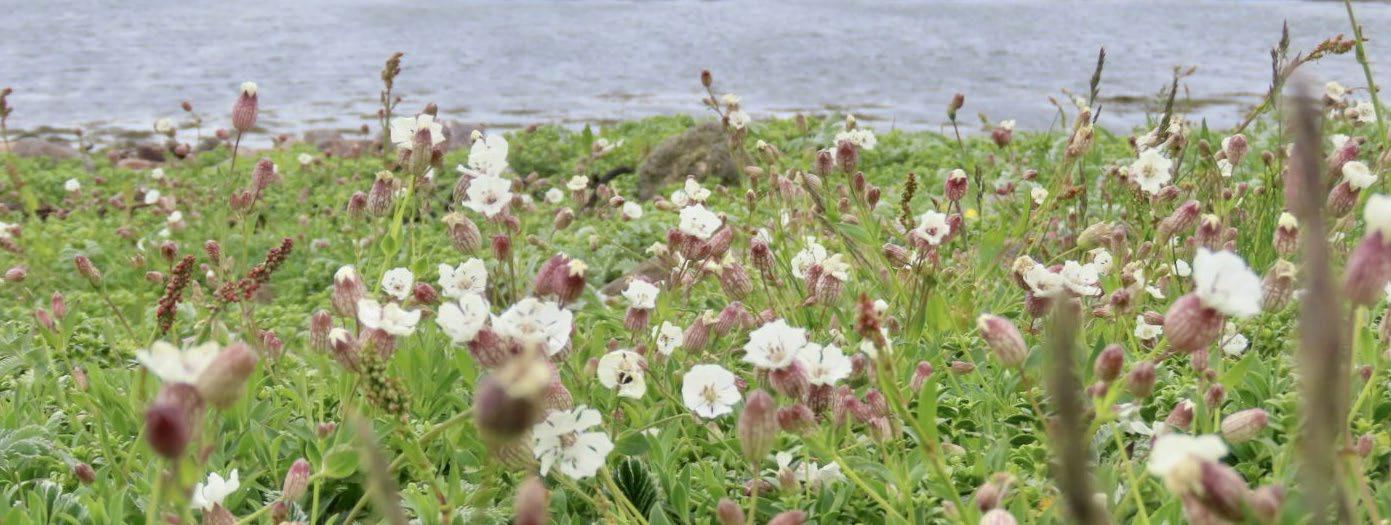
92 industry partners worked with on collaborative PhDs
101 collaborative PhDs funded over 10 years
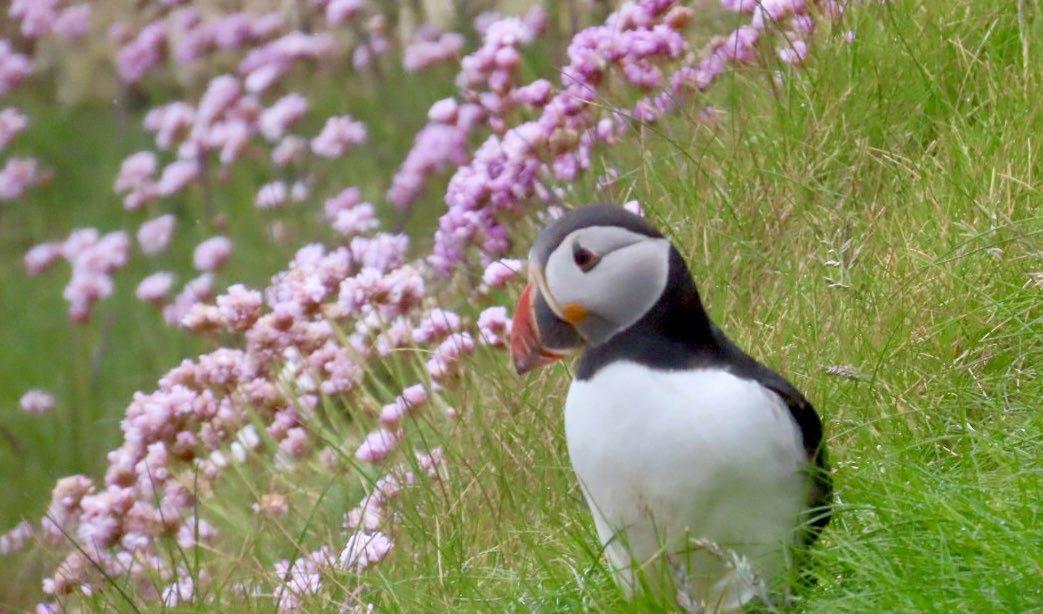
Rebecca Cornwell is currently undertaking a SGSAH Collaborative Doctoral Award, based at the University of the Highlands and Islands in partnership with the Royal Botanic Gardens Edinburgh. Her PhD research focuses on Shetland botanical writing and what it reveals about modern and historical relationships with rare plants.
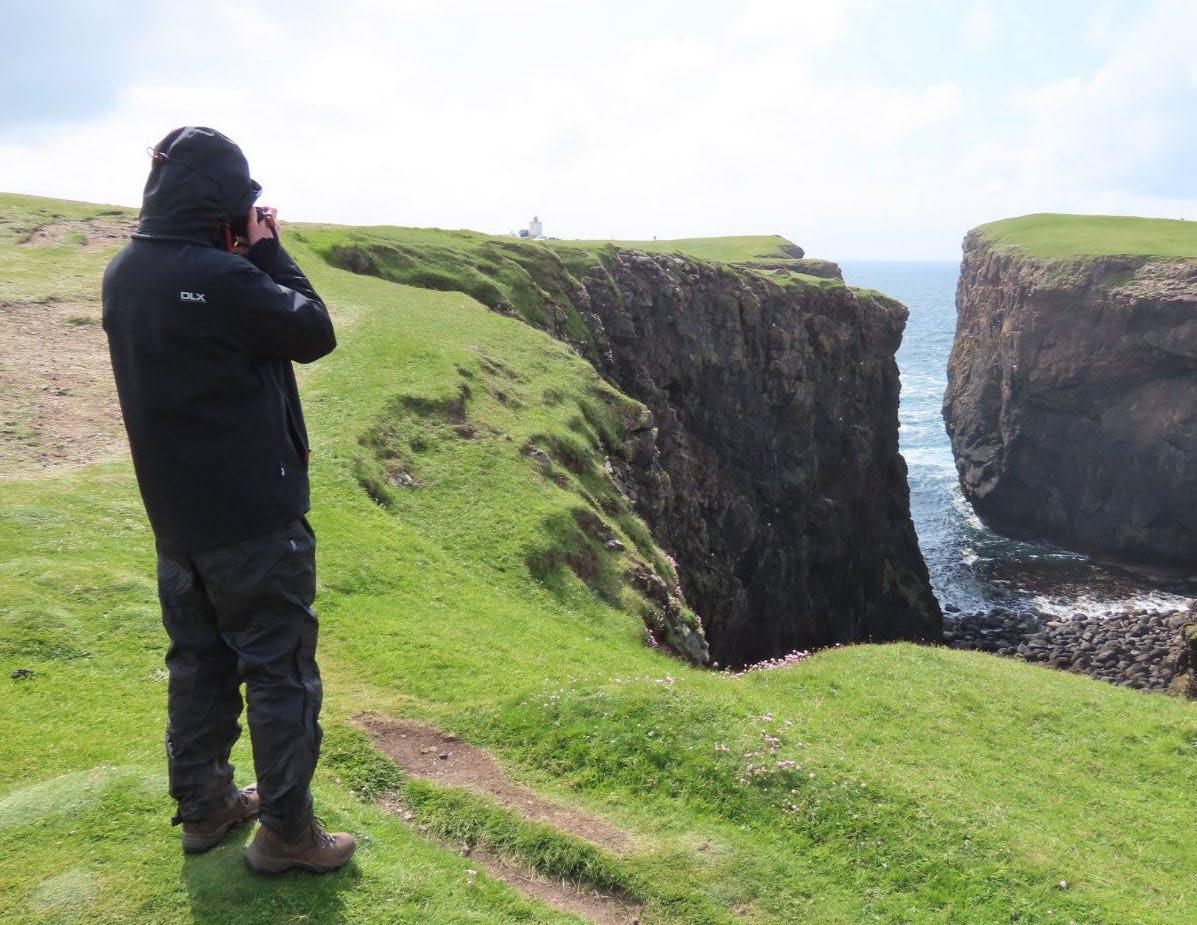
‘The journey of SGSAH has been nothing short of extraordinary. For over a decade, SGSAH has established a highly effective national partnership model, significantly impacting not only the doctoral researchers it supports but also the member institutions and broader diverse collaborations across Scotland, the UK and internationally. Its leadership in arts and humanities doctoral training has been extensive, marked by a clear vision and purpose and a commitment to equality, diversity and inclusion. SGSAH has successfully cultivated deeper and more extensive research collaborations, demonstrating its pivotal role in advancing the field.’
Professor Jo Gill (University of Glasgow) and Professor Sarah Prescott (University of Edinburgh), Co-Chairs of the SGSAH Board
‘The partnership between Glasgow Women's Library and SGSAH over the past 10 years has been invaluable, fostering a solid base for continued, mutually beneficial collaboration. SGSAH provides a mechanism for us to engage directly with academia and research and a productive pathway for researchers and academic colleagues to learn from our approaches to working and engage with our collections and specialist staff.’
Adele Patrick Co-Founder and Director, Glasgow Women’s Library
‘For the past ten years SGSAH has made an invaluable contribution. In providing outstanding training to doctoral researchers across Arts & Humanities disciplines and from all parts of Scotland, SGSAH has energetically and skilfully supported innovation, cultural development, and societal wellbeing, driving economic growth and enhancing Scotland's global standing.’
Morag Campbell
Assistant Director of Research and Innovation, Scottish Funding Council (SFC)
‘SGSAH has over a decade made an important contribution to the development of talented individuals with brilliant ideas. Some will have stayed in Scotland and developed the national capacity for research and innovation or taken their skills to different sectors altogether. And for a country so global in history and reach, it’s right that some will have come from abroad or gone abroad.
But all will be making an impact in their way and the depth of training and support they will have received from SGSAH will have been critical. At AHRC we wish every SGSAH funded graduate well in their chosen path, and celebrate a decade of commitment to the place of arts and humanities in our society.’
Professor Christopher Smith Executive Chair, AHRC
‘Working with SGSAH as an industry partner has been a fantastic experience for the Trust, giving us the opportunity to help shape policy and get involved with the direction of the School. SGSAH have supported us hugely in terms of research strategy and we’re looking forward to continuing our collaboration for the future.’
Michael Terwey Director of Public Engagement & Research, National Trust for Scotland
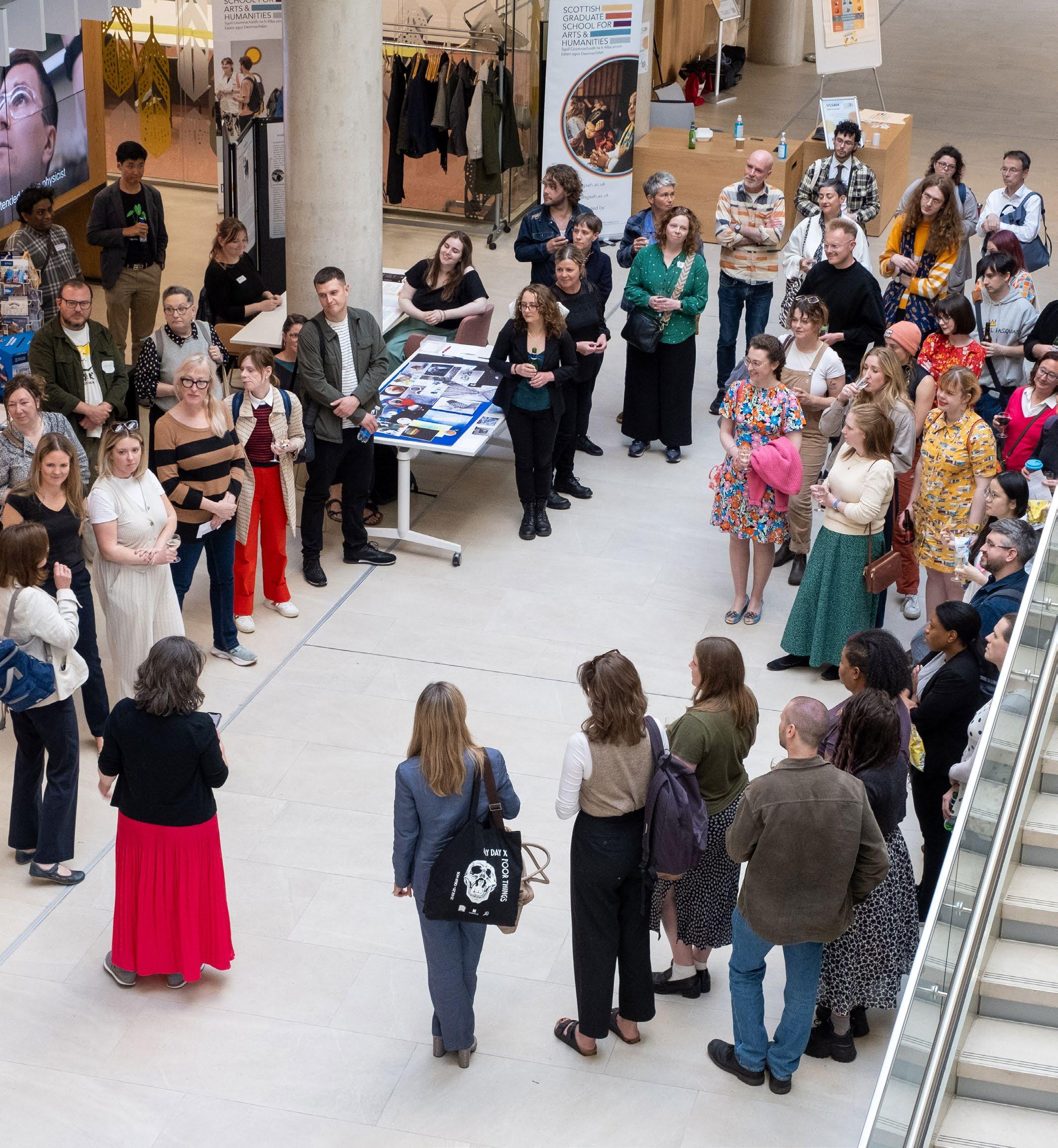
© Alan McAteer
SGSAH’s award-winning Research Internships and Artists’ Residencies programme funds PhD researchers in the Arts & Humanities in Scotland to spend up to three months at a host partner organisation, working in a wide variety of contexts.
Since 2014, SGSAH has supported approximately 300 Arts & Humanities doctoral researchers to take up research internships or artist residencies across multiple sectors in Scotland, the UK and across the world, supporting by additional stipend funding and travel expenses. Host organisations have varied widely, from a contemporary art gallery in Manhattan to a high-school mentoring programme in Scotland, and from the Persian library in Berlin to Orkney Science Festival. All these opportunities share the same aims, though: to give PhD researchers the chance to make a real difference to an organisation whilst developing skills, networks and experience to help take them to the next stage of their careers.
Recent SGSAH-funded internships include a research internship for PhD researcher Lexington Davies (University of St Andrews), who undertook a 12-week role as Curatorial Fellow for the New Museum of Contemporary Art, New York, focusing on public programming and exhibitions in summer 2023.
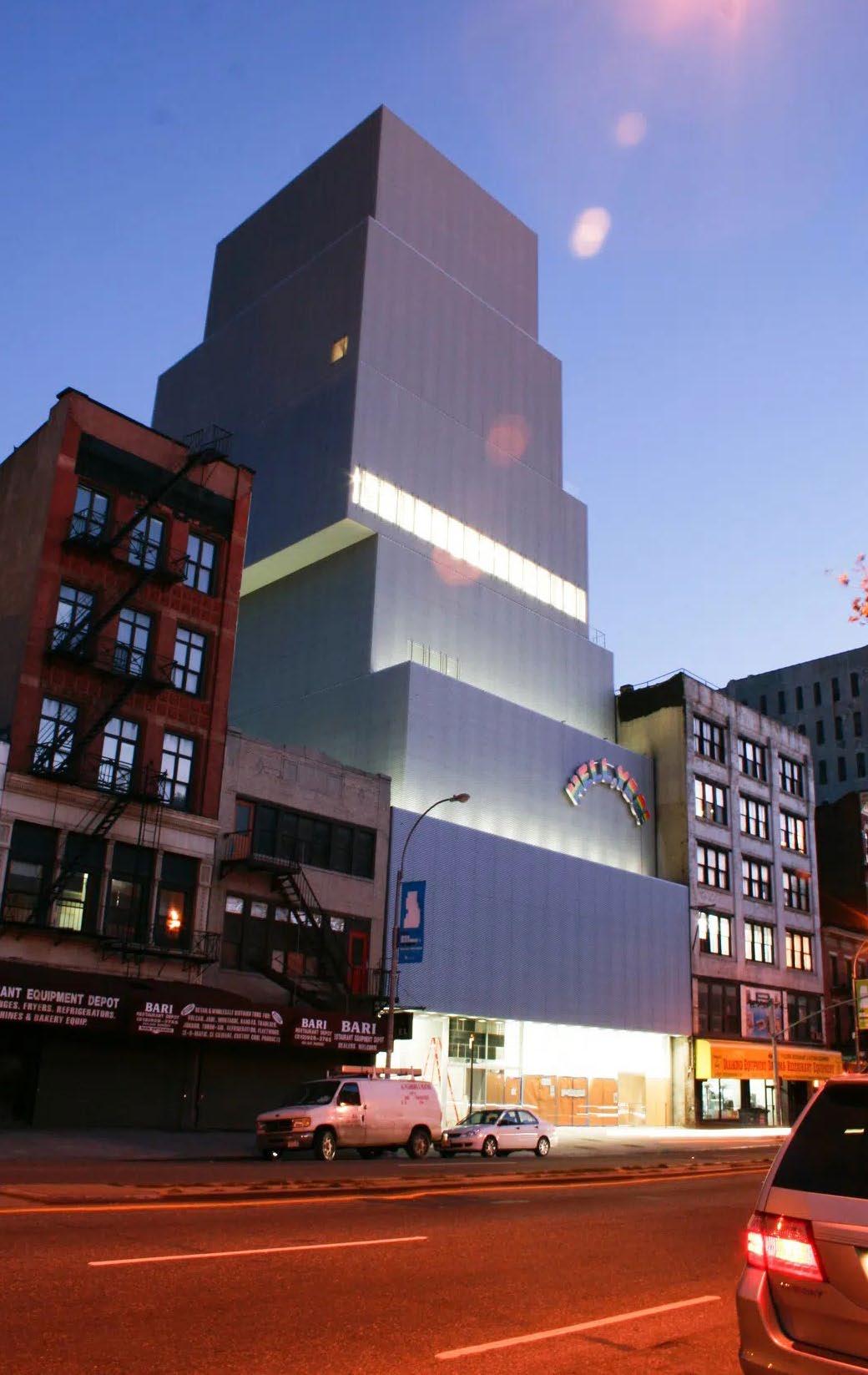
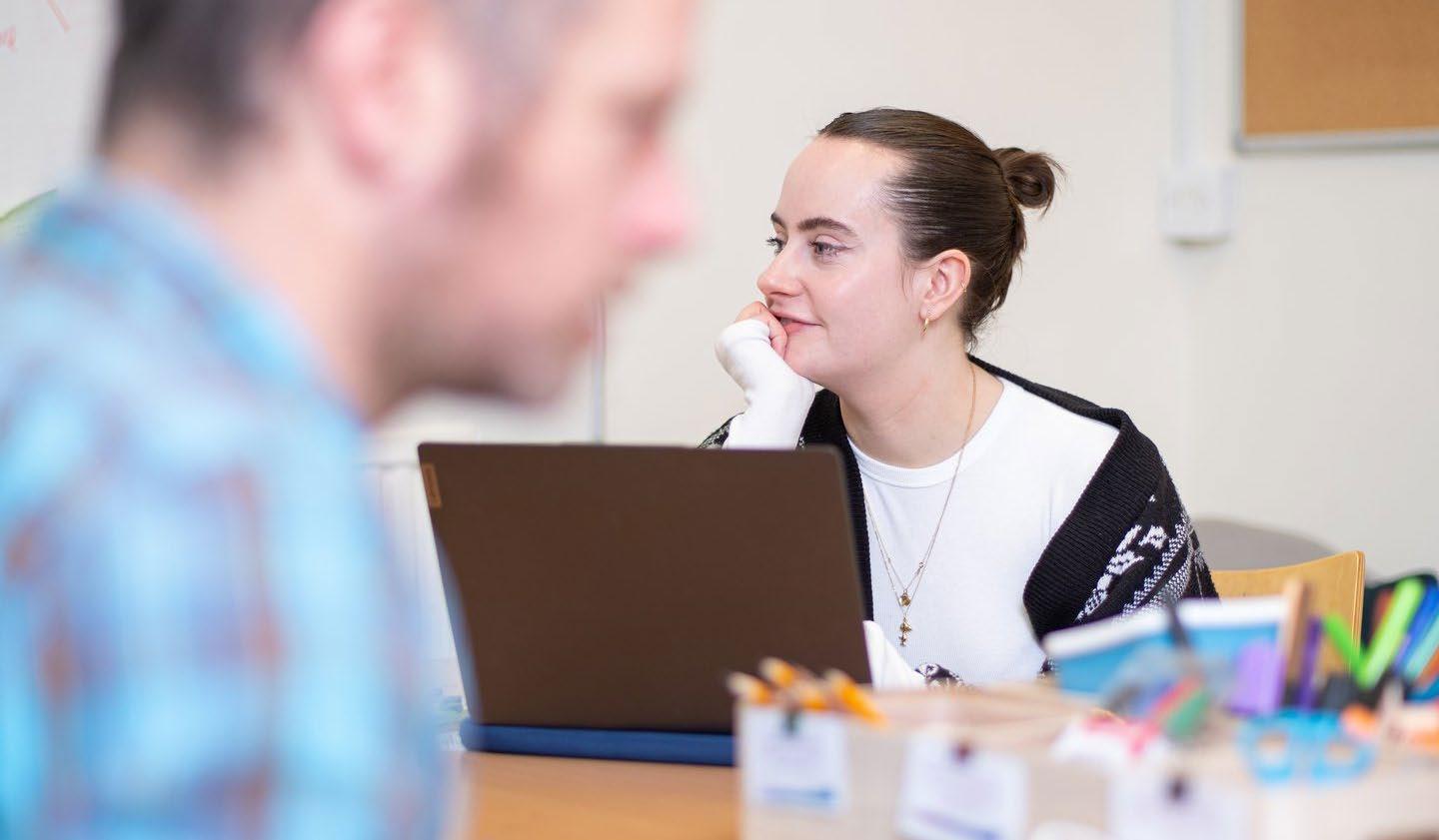
University of Aberdeen law PhD researcher Gabriel Emeasoba recently undertook his SGSAH-funded research internship exploring the impact of mentoring and student-led learning with Scottish charity Light Up Learning, building on his interests in teaching and mentoring young people.
Winner — Best Collaboration (Arts & Culture)
2017 University of Glasgow Knowledge Exchange & Public Engagement Awards
Finalist — Outstanding Employer Engagement
2018 Herald Higher Education Awards
Shortlisted — Excellence and Innovation in the Arts
2018 Times Higher Education Awards (THE)
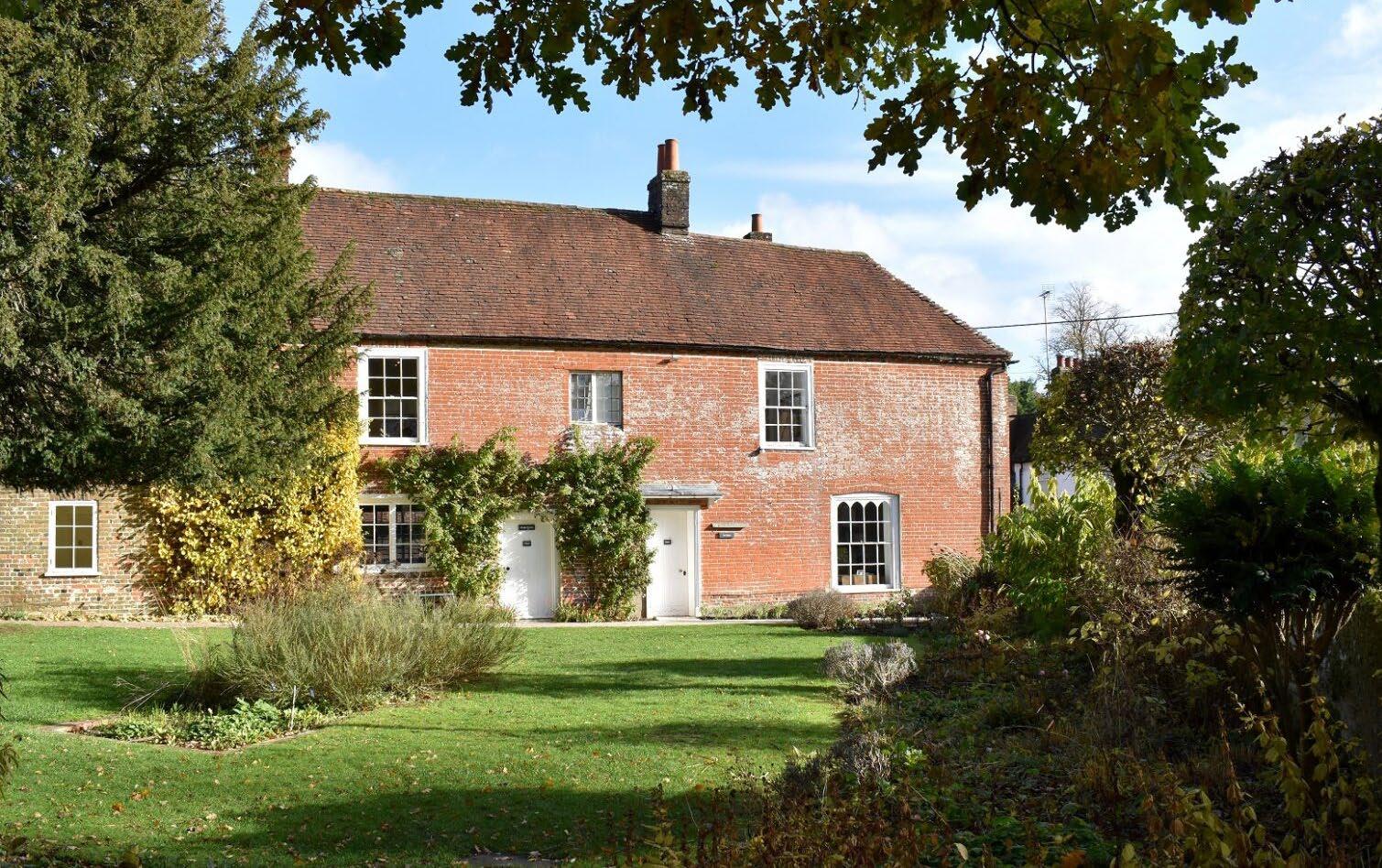
‘A huge part of my PhD journey has been the SGSAH internship I completed in my second year. As a DTP-funded student I was able to organise my own and was given an unprecedented level of freedom to pursue whatever interested me. I was encouraged to think big and contacted Jane Austen's House to discuss potential projects. I organised the 75th anniversary display and events for the museum and had such a positive experience with everyone involved – and this year will get to see the outputs of my work. Thanks to SGSAH this is the biggest project I've completed so far, and the proudest I've ever been of my work. It’s the most positive experience I've had through the entirety of my University career.’
Rachel Millar PhD researcher, University of Glasgow
+230
partner organisations have hosted a SGSAH intern
+300
internships funded by SGSAH across the world over 10 years
£544K leveraged outputs
Since its launch in 2015, the SGSAH Summer School has been a landmark in the calendar of doctoral researchers each year. Bringing together researchers and external partners from across Scotland and beyond, the Summer School offers a range of practical workshops, talks, masterclasses and lectures responding to the latest developments in the sector and the needs of researchers.
Over the years, SGSAH has run a whopping 322 workshops for over 1000 delegates. Workshops have ranged in theme from Feminist Research Methods, Podcasting your PhD, Presentation Skills, Exploring Mental Health in Literature, Social Media for Researchers and so much more. The Summer School has been held in a range of venues across Glasgow, and was held entirely online in 2020 and 2021, which has allowed SGSAH to develop the current hybrid set up that has been running since 2022.
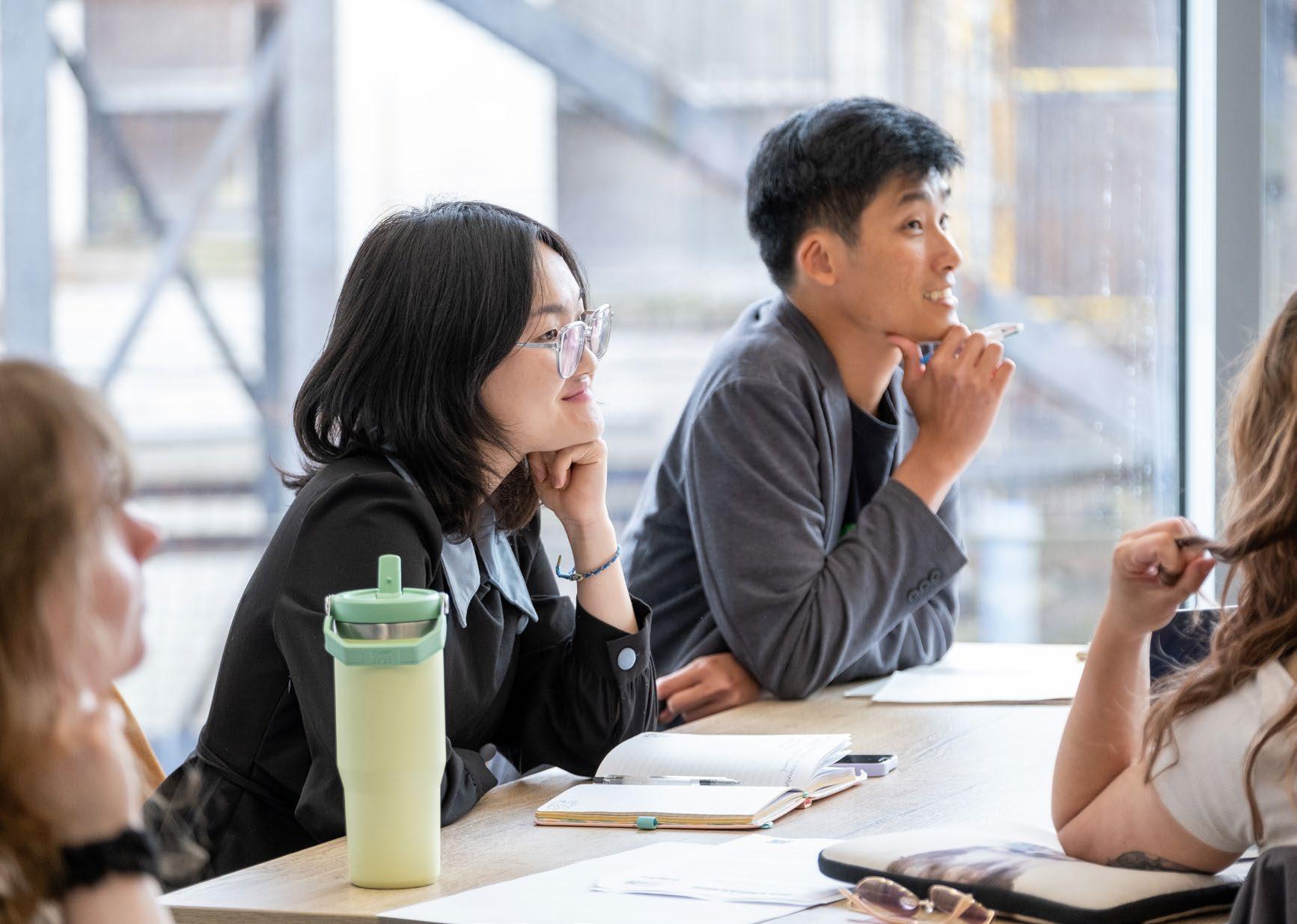
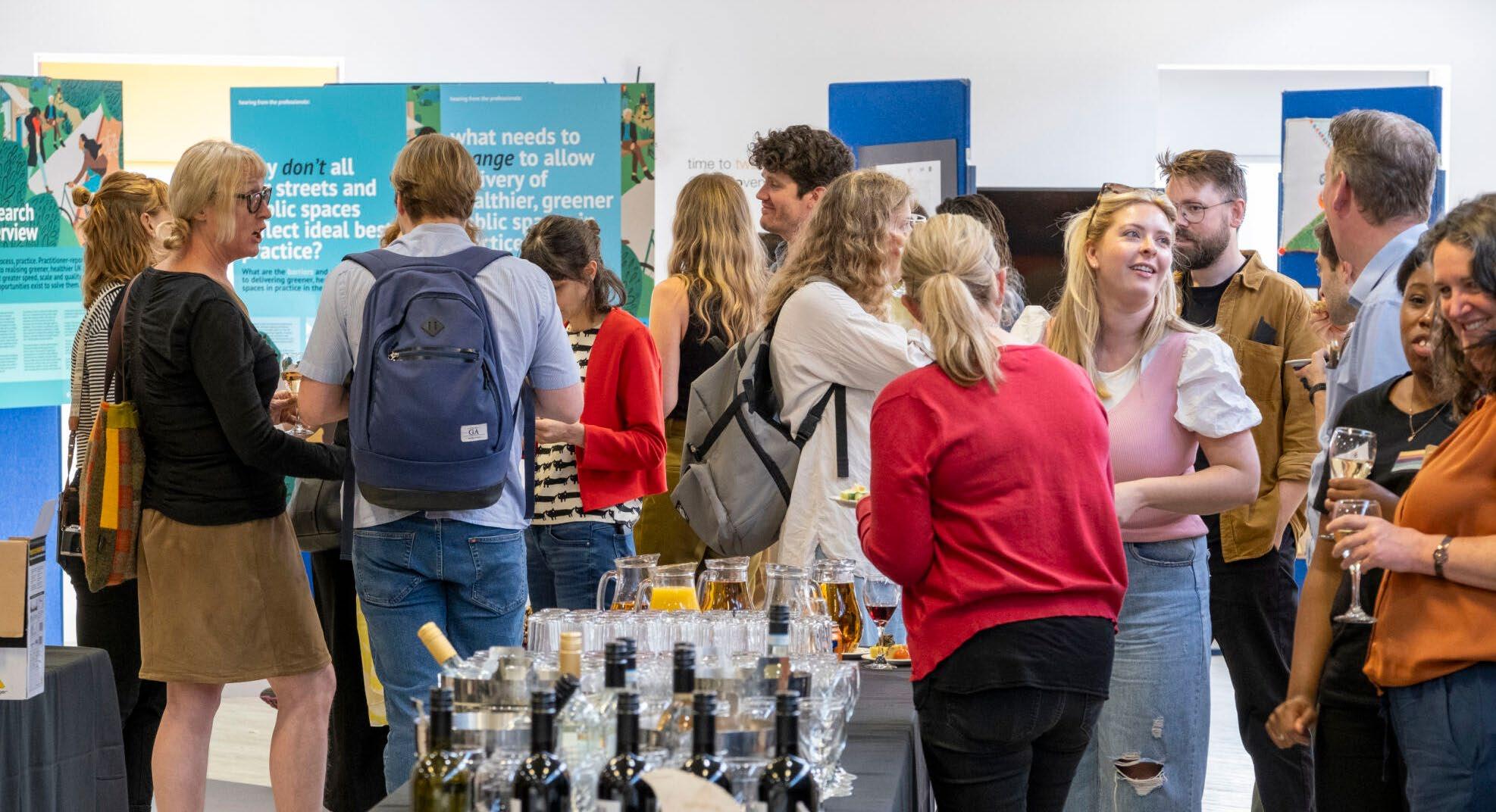
© Alan McAteer
‘I really enjoyed attending the SGSAH Summer School in person this year! I truly benefitted from connecting with my peers and genuinely enjoyed all of the sessions I attended.’
Summer
School 2023 attendee
One highlight of Summer School each year is the Doctoral Research Showcase, which illustrates the innovative research being undertaken by Arts & Humanities doctoral researchers across Scotland. Several researchers present exhibits each year exploring diverse research themes through various mediums from performance to textile. The Showcase provides researchers an opportunity to share their work with their peers and the wider Arts & Humanities research community.
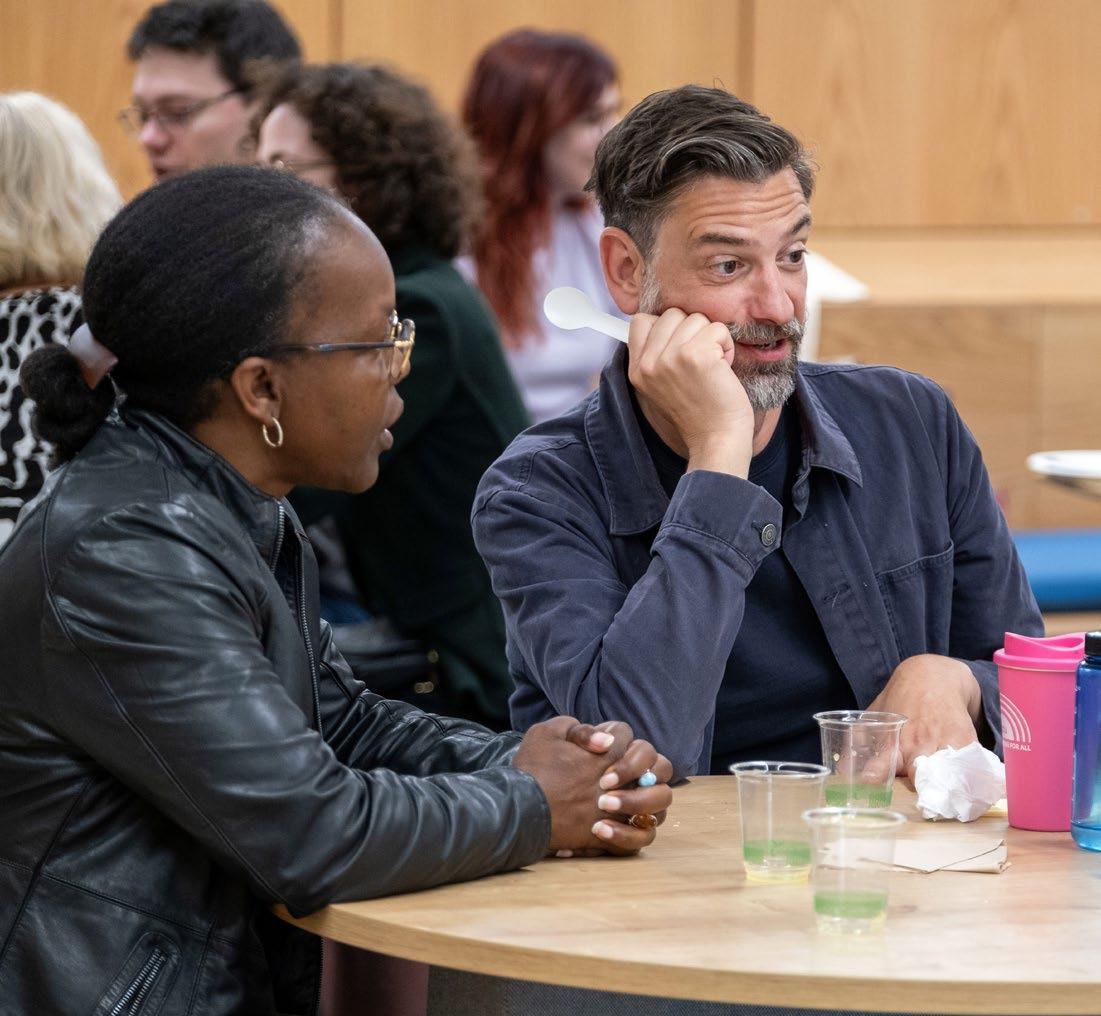
SGSAH’s Discipline+ Catalysts offer doctoral researchers highly specialised training in the methodological, empirical, theoretical, and thematic areas related to the disciplines spanning the entirety of the Arts & Humanities.
Drawn from our 17 HEI members, the 11 Discipline+ Catalysts cover:
• Archaeology & Classics
• Cultural & Museum Studies
• Creative Arts & Design
• History
• Law
• Linguistics
• Literature
• Media, Communications, Film & TV
• Modern Languages
• Philosophy
• Theology, Divinity & Religions
The Catalysts and the training events they offer are testament to the breadth and diversity of Arts & Humanities research more broadly, but particularly in the context of Scottish academic life.
Echoing SGSAH’s remit as a national graduate school, the events offered by our Catalysts are open to all Arts & Humanities doctoral researchers in Scotland. Each Catalyst is overseen by Leads, Deputy Leads and members with expertise in cutting-edge debates and innovative training at the forefront of their disciplines. A distinctive offer of the Catalysts, emphasised by the ‘plus’ of Discipline+, is the importance of interdisciplinarity to many doctoral research projects, and the Catalysts actively promote dialogue across a wide range of themes. For example, in the context of the COP26 climate conference which took place in Glasgow in 2021, a number of Catalysts offered training related to the climate emergency.
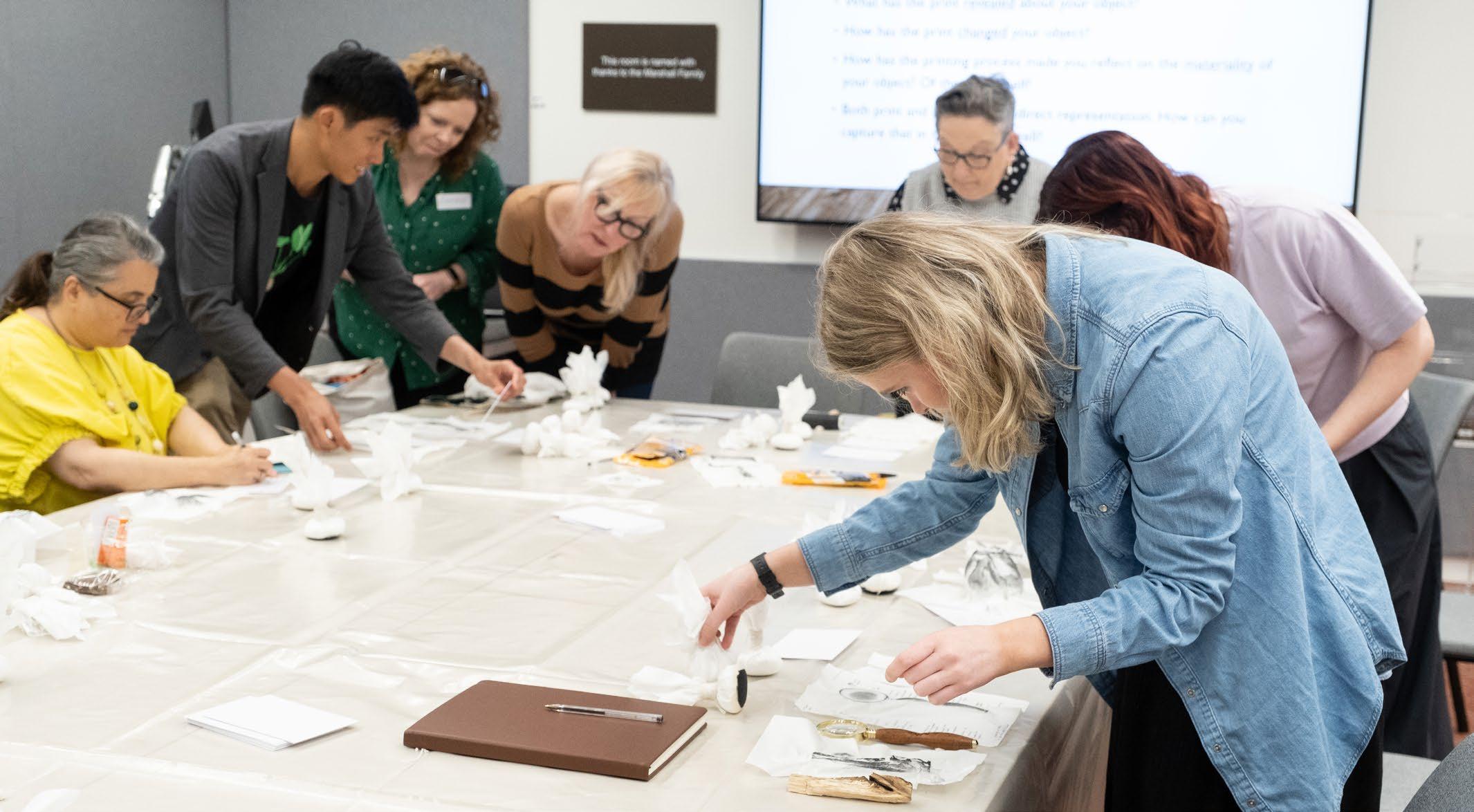

Some highlights from recent years demonstrate the health of Arts & Humanities doctoral education in Scotland. In 2020–21 all of the events were delivered online due to the COVID-19 pandemic, ranging from Women, Religion and Culture: The Challenges of Writing about Subjectivity (Modern Languages), Beyond Statutes and Case Law (Law), Published Philosophy Research (Philosophy), Creativity and Physical Activity (Creative Arts and Design), to Ethnographic Research Methods for Arts and Humanities (Cultural & Museum Studies).
As restrictions slowly lifted in 2021–22 approximately half of the Catalyst events returned to in-person delivery, with sessions including Introduction to Chronology and Radiocarbon Dating (Archaeology & Classics), through to Environmental History (History), and Reading and Writing Place in Scotland (Literature).
Across the last two academic years, events have included Language and Sustainability (Linguistics), Back to the Archive: Engaging with Collections in the Wake of the Pandemic (Media, Communications, Film and TV), and the Theology, Divinity & Religions Catalyst’s Scottish University Biblical Studies Postgraduate Day Conference.
170 training events since 2019
+3,500 training places since 2019
Over the past 10 years, SGSAH has developed a strong profile in terms of exploring how the Environmental Arts & Humanities contribute to conversations about climate emergency, and in thinking about our collective responsibilities towards the planet.
In 2022, SGSAH published an environmental strategy and operations plan. Through this GREEN/GRADUATE school initiative SGSAH states its deep-rooted concern at the crisis affecting us all, a situation that endangers our very existence. As the world's first national graduate school for the Arts & Humanities SGSAH is uniquely placed to leverage the intellectual and creative power of our doctoral community and beyond to tackle the climate emergency.
Furthering this approach from 2023 onwards, SGSAH has worked closely with British Council Scotland on the EARTH Scholarships, an innovative programme which brings PhD and Early Career Researchers in the Environmental Arts & Humanities from around the globe to Scotland. Working closely with a mentor at one of our member HEIs, a highlight of the scheme is a 2-week series of workshops and site visits led by academic colleagues, including trips to Glasgow, Glencoe, Dundee, Edinburgh, St Andrews and Stirling.
Researchers have joined us from countries including Australia, Canada, France, Ireland, Mexico, Norway, the Netherlands, New Zealand, India, South Africa, Switzerland and the United States. On the 2-week programme, the incoming scholars are joined by an equivalent number of Scotland-based PhD researchers. Individual scholars’ projects include foci on rewilding, climate refugees, critical ocean studies, and human-seal relations.
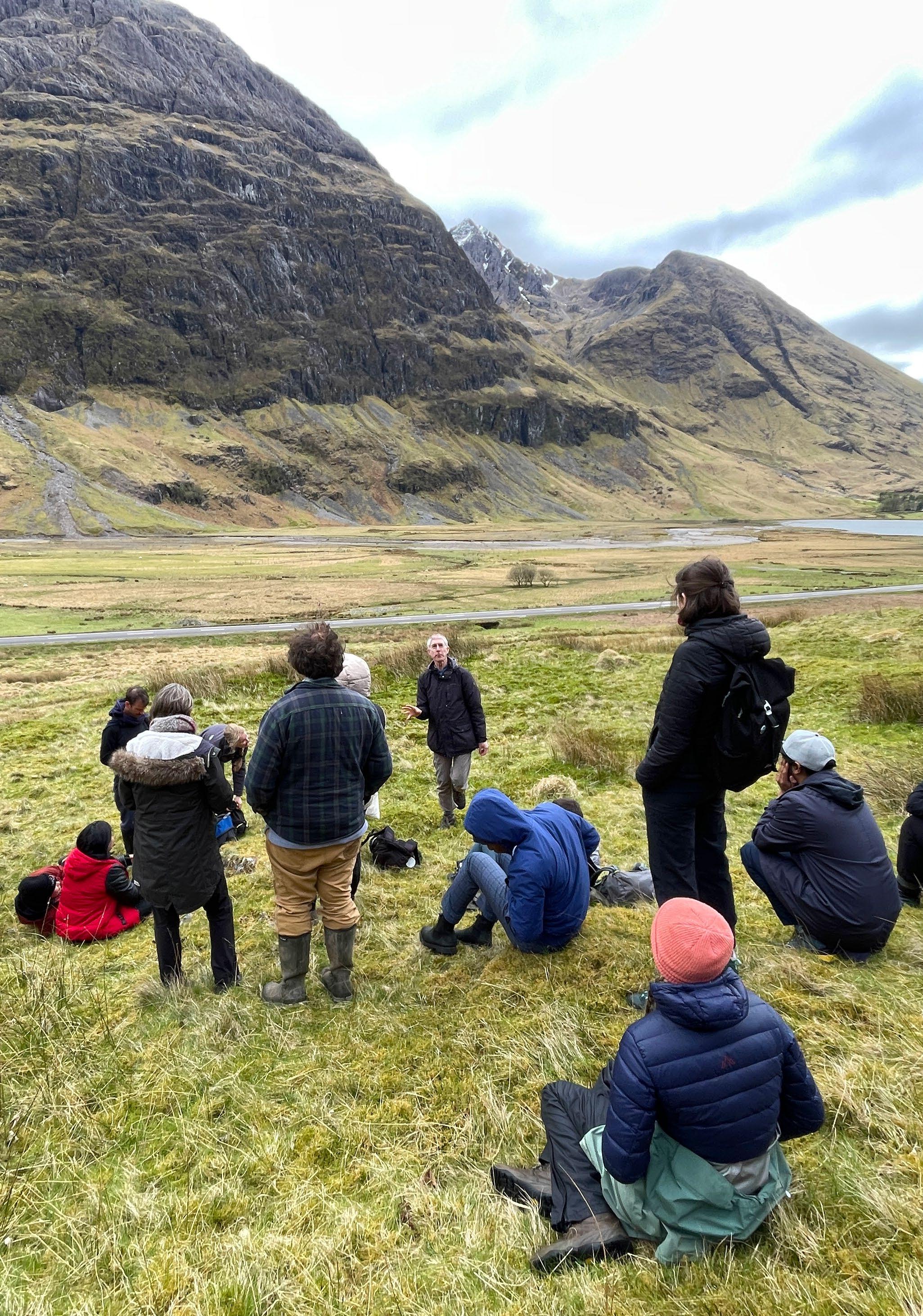
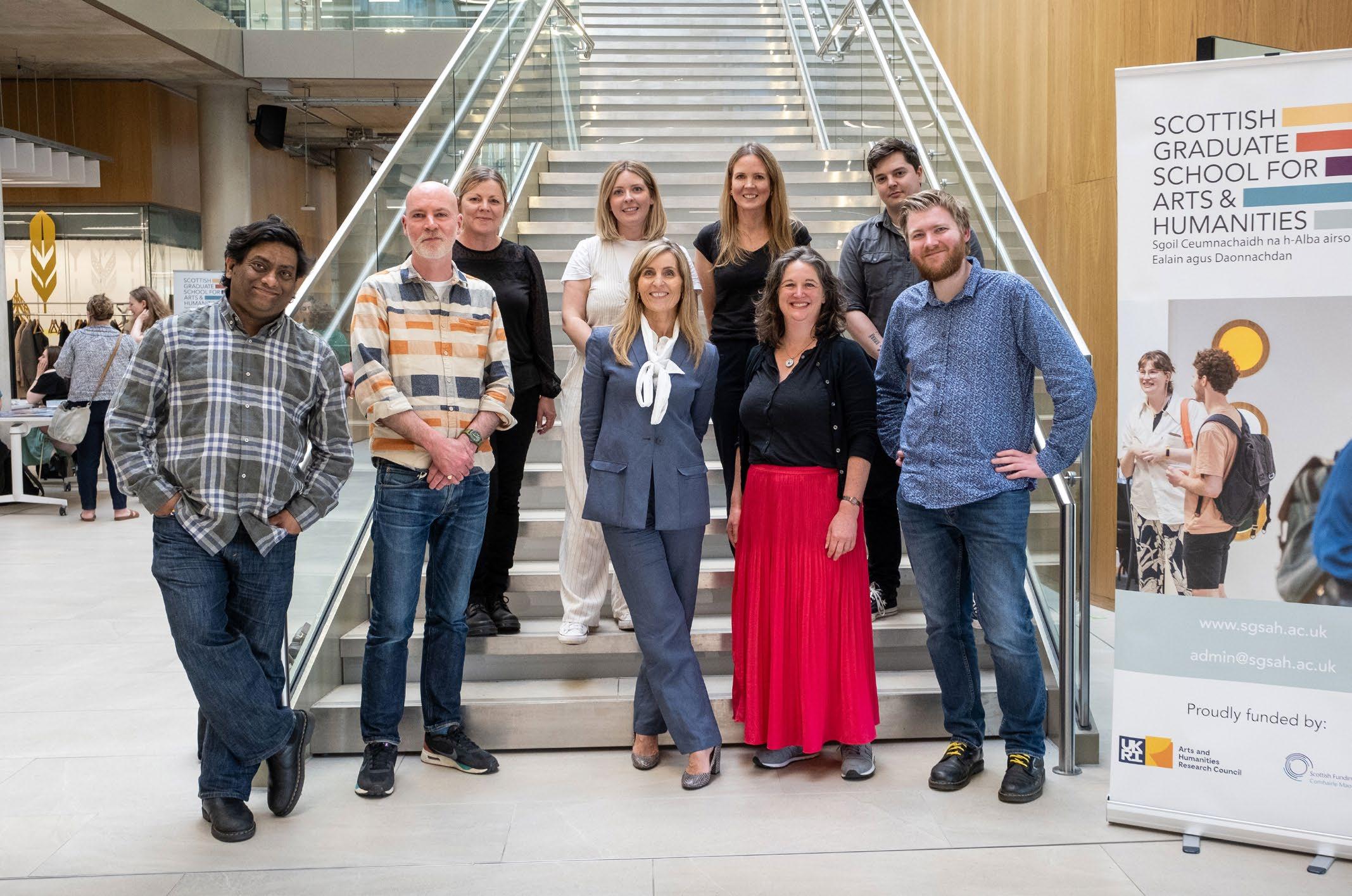
Professor Claire Squires (she/her)
Director
When our Millport cohort residential coincided with a visit from the historic Paddle Steamer Waverley, so we booked for a two-island trip from Cumbrae to Arran and back!
Dr Andrew Dilley (he/his)
Deputy Director
Joining SGSAH in July 2024. It’s been a privilege to carry SGSAH’s work forwards.
Lindsay Wilson (she/her)
Operations Manager
Our very first event in October 2014. The first cohort workshopped ideas for additional training needs. We were thrilled to discover their ideas aligned with what we were planning for them.
Monica Callaghan (she/her)
Head of Operations & Strategy
Cementing the British Council Scotland partnership by creating the EARTH Scholarship Environmental Arts & Humanities international exchange programme.
Helen Kendrick (she/her)
Partnerships & Placements Manager
SGSAH Burns Night ceilidh in January 2023, where many of our international students experienced the wonder of ceilidh dancing for the first time.
Jordan McInally (she/her)
Administrative Assistant
Getting off the Waverley at the Year 2
Residential to a full pipe band - it felt extra special knowing we had lots of international students experiencing bagpipes for what might have been the first time!
Hugh Woods (he/his)
Senior Financial Analyst
The first Research Showcase event in 2015. Everything was new in the 1st year – there were no procedures in place and every day presented fresh challenges. The Showcase was not only an impressive demonstration of the work of many students, but also of the achievement of SGSAH staff and partners in that 1st year.
Sam Morton (he/his)
Modern Apprentice
The Year 3 event in Edinburgh in May 2023 which was my first event with SGSAH. It was really nice to meet some of our researchers for the first time and start putting names to faces.
Eliott Simpson (he/his)
Media & Communications Assistant
Getting to explore Stirling Castle with all the EARTH Scholars during the Cohort Programme in April 2024. It was an amazing bonding exercise to get to know all the researchers better.
Dr Anindya Raychaudhuri (he/his)
Equality, Diversity & Inclusion (EDI) Lead
Cycling back after the pub in Millport. It was VERY dark!
Mariam Jack (she/her)
Media & Communications Administrator
The 2022 SGSAH Summer School & Research Showcase. It was a particularly hot, summery week so everyone was particularly cheery and it was so lovely to see people!
Professor Craig Martin (he/his) Deputy Director (2020–24)
Meeting everyone in person for the first time after COVID.










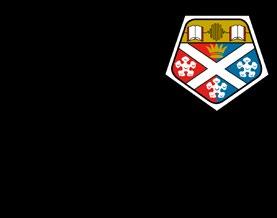
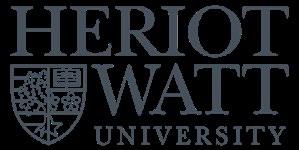


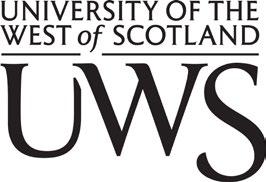


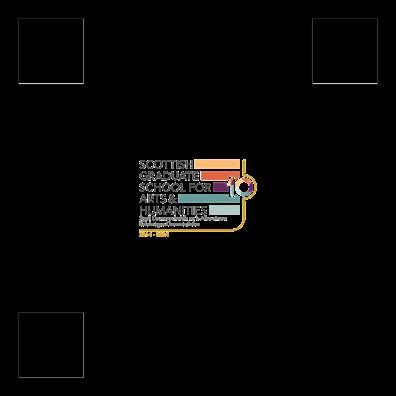
Contact
admin@sgsah.ac.uk
https://www.sgsah.ac.uk/
PhD Blog
https://sgsahblog.com/
PhD Research Showcase
https://sgsahresearch.com/